100 Years of McIntire School of Commerce
During UVA’s early years, there was a focus on preparation for professional schools such as law and medicine, but at the turn of the 20th century, the idea of business education at UVA gained steam, with the University administration recognizing the importance of commerce for any broad improvement in region's standards of living.
While there was no formal business education in the form of a degree or school at the University in 1919, business-related courses such as Statistics and Accounting, Business Organization, and Commercial Law were being offered, as such skills were thought to be useful to the war effort.
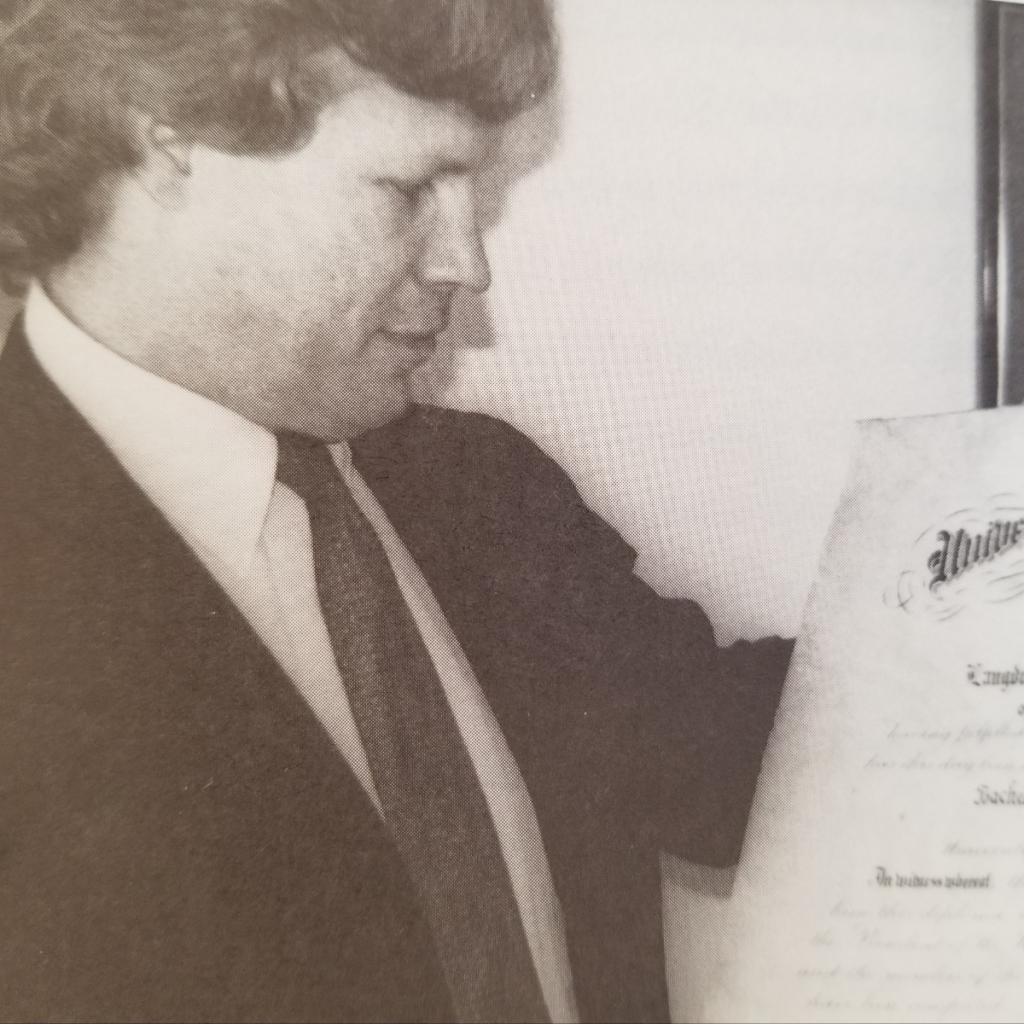
The first B.S. in Commerce was awarded to David Bloom Jr. (from Memphis, TN) in 1921. Shown here is Flip Bowry (McIntire 1991), who is holding the diploma of his grandfather Langdon Hankins (McIntire 1921). Hankins was the second UVA student to graduate with a B.S. in Commerce.
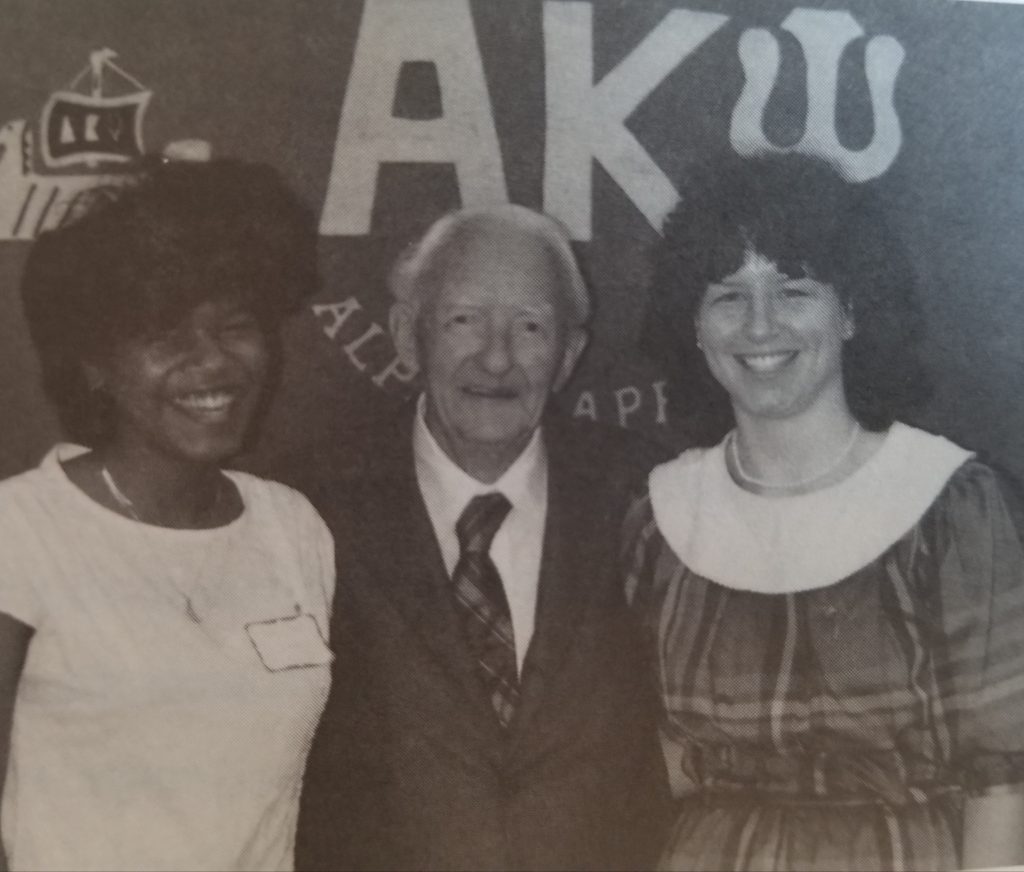
Alpha Kappa Psi (AKPsi) is a student organization that seeks to foster scientific research in the fields of commerce, accounting, and finance; to educate the public to appreciate and demand higher ideals therein; and to promote and advance courses leading to degrees in Business Administration.
Maximilian Barlow, who taught Accounting, was hired as the first long-term faculty in core business disciplines at McIntire.
Elbert Kincaid joined the University of Virginia faculty in 1922. He traveled from California, having been recommended to President Alderman. Born in Palouse, WA, Kincaid earned his bachelor’s degree from Washington State College in 1910, and then headed east to earn a master’s degree from Harvard in 1911.
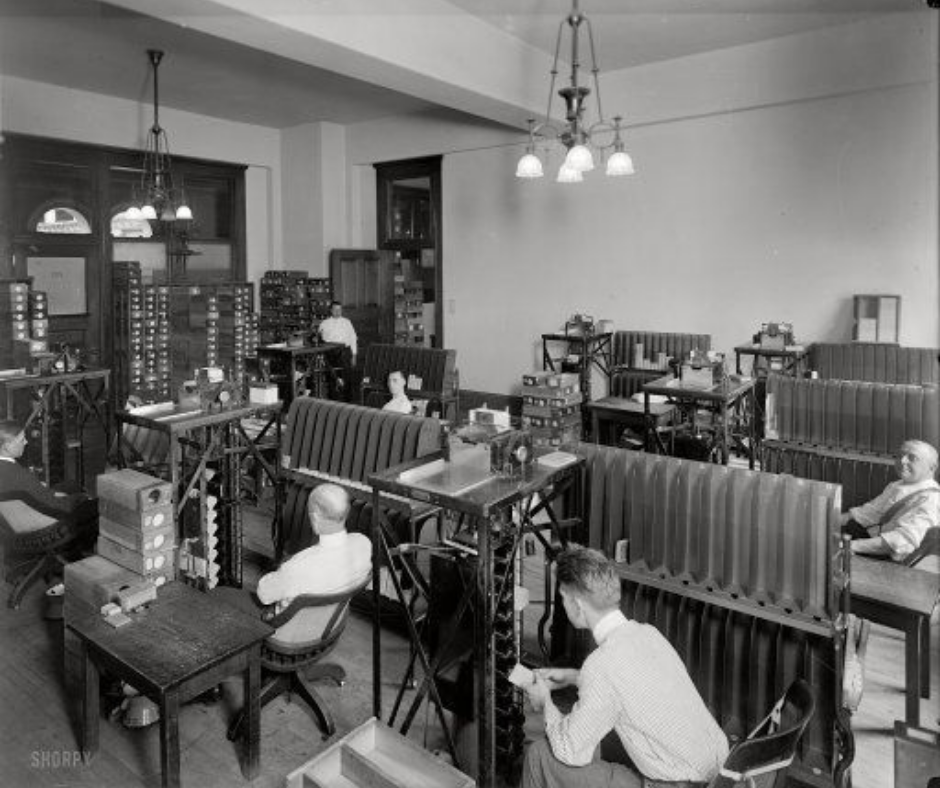
Early on, business classes were scattered across Grounds, but in 1923, space at Old Cabell Hall was requested due to the need for permanent facilities for "computing and tabulating machines," like the ones pictured below from the Old Post Office on Pennsylvania Avenue. To say our "computing and tabulating machines" have evolved may be the understatement of the century! Space at Old Cabell was also used for periodicals and a reading room; however, faculty offices remained scattered in several locations, making the development of School spirit and identity more difficult.
The American Assembly of Collegiate Schools of Business (now the Association to Advance Collegiate Schools of Business) was founded as an accrediting body in 1916 by a group of 17 American universities and colleges, with the first accreditations taking place in 1919. In May of 1925, McIntire received full accreditation from the American Association of Collegiate Schools of Business, as the accrediting body was then known.
In 1929, the Alpha of Virginia Chapter of Beta Gamma Sigma was established at McIntire. Still in existence at McIntire today, this national honorary society encourages and rewards scholarship and accomplishment among students of Commerce and Business Administration. The top 10% of third- and fourth-year Commerce students are eligible, and the top 20% of graduate students are invited to the society.
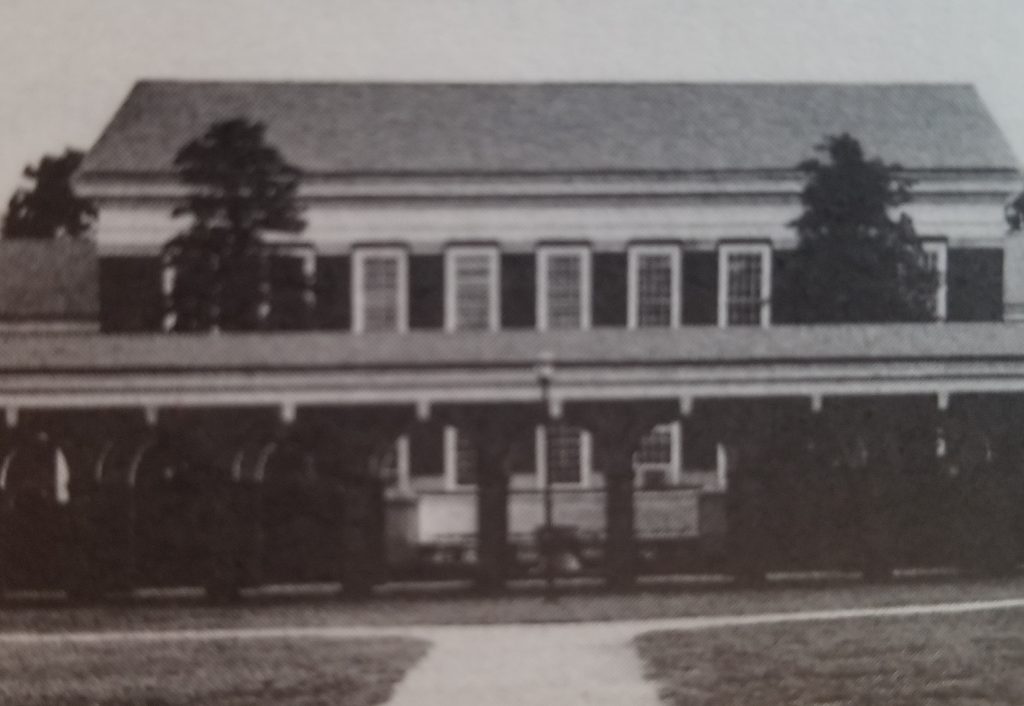
The McIntire School moved to Monroe Hall, a 67,000-square-foot building located on UVA's Central Grounds, in 1930. The building consists of an original core built in 1929 and a larger addition built in 1988.
“The most comforting aspect of [the Great Depression] period was the commonality of experience and the lesson of humility and gratitude which was learned as a consequence. Students coming to the University came from families which were making sacrifices for education, and the seriousness of students about and for their studies increased. There was in McIntire and its faculty a growing appreciation for the students and the camaraderie of working on shared projects.”
In 1932, leadership, faculty, and staff saw a 10% cut in salaries due to the Great Depression, with an additional 20% cut in 1933. The average income during this period (prior to cuts) was $1,368.
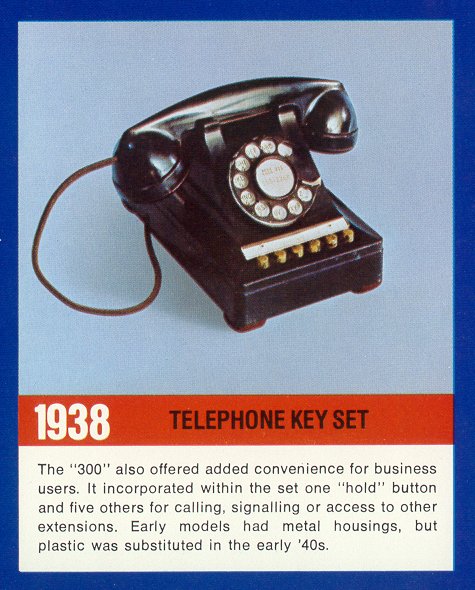
In 1938, a second telephone was approved for the School and placed in Maximilian Barlow's office. Barlow was hired to teach Accounting at the University during the 1921-1922 academic year.
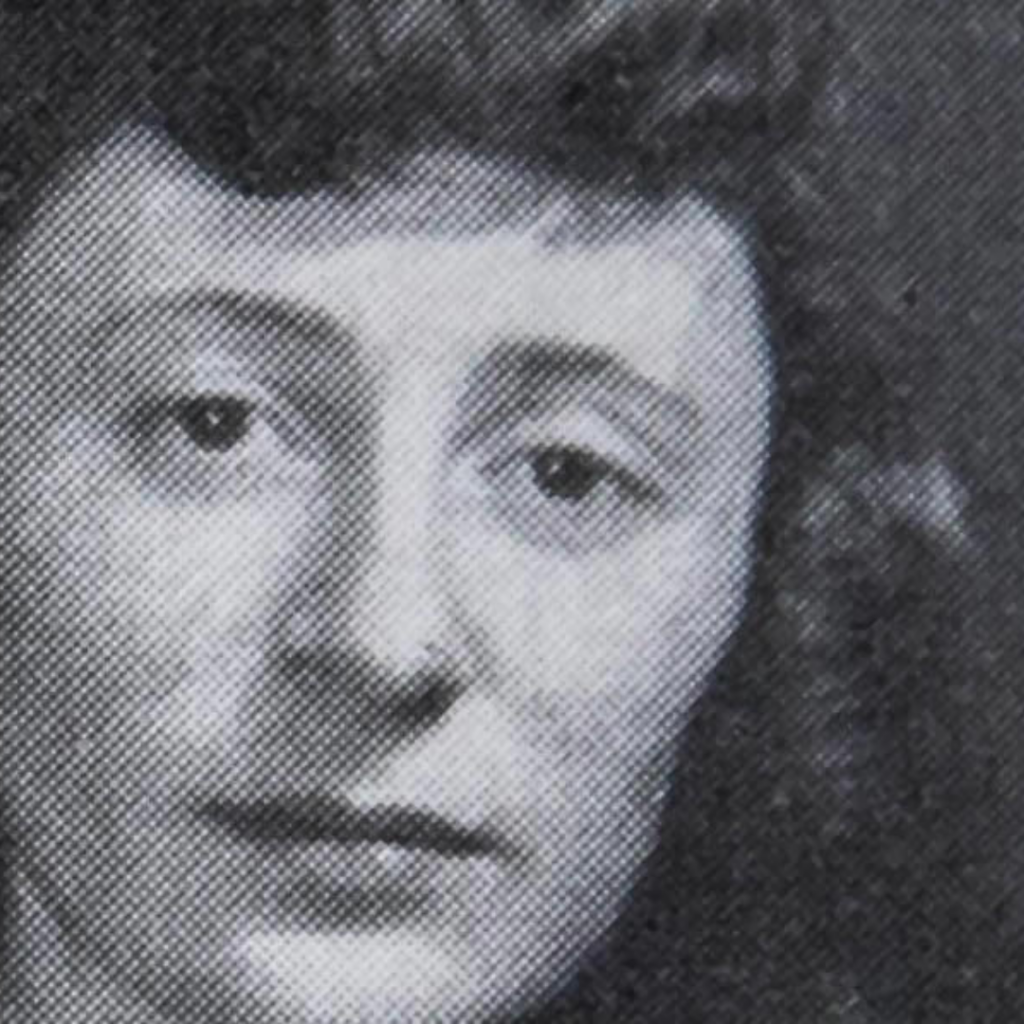
When Patricia Earle (McIntire 1946) came to UVA, the Curry School of Education was the only school that admitted women. The problem was that Patricia had no interest in being a teacher, so a friend prompted her to talk to Tipton R. Snavely, who headed McIntire at the time, and he assured her there was a place for her at McIntire and in business.
Commerce was removed from the College of Arts & Sciences in 1952 to become an independent School of Business Administration.
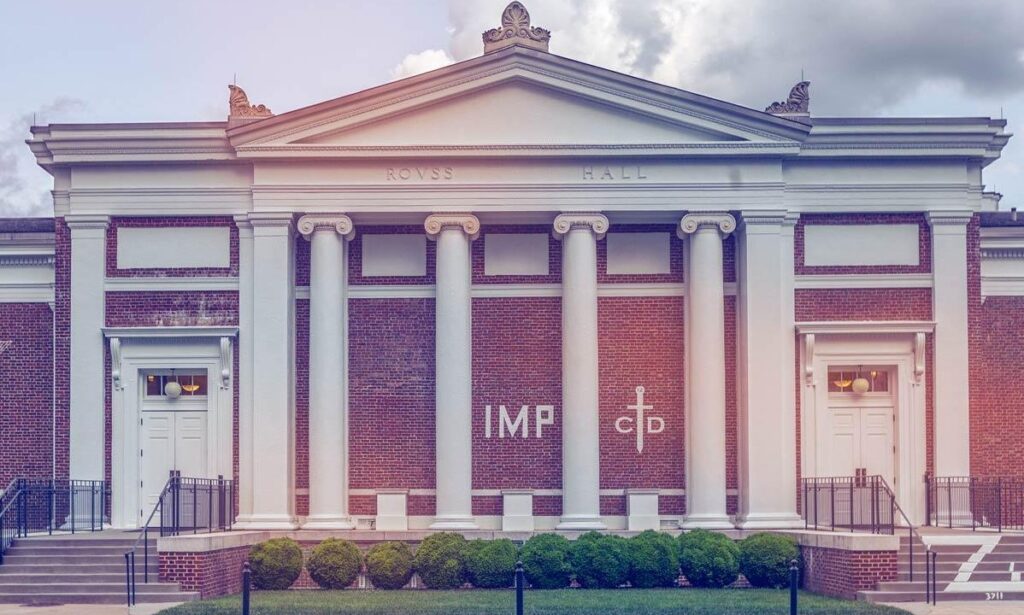
From 1955 to 1975, Rouss Hall served as home to the McIntire School of Commerce.
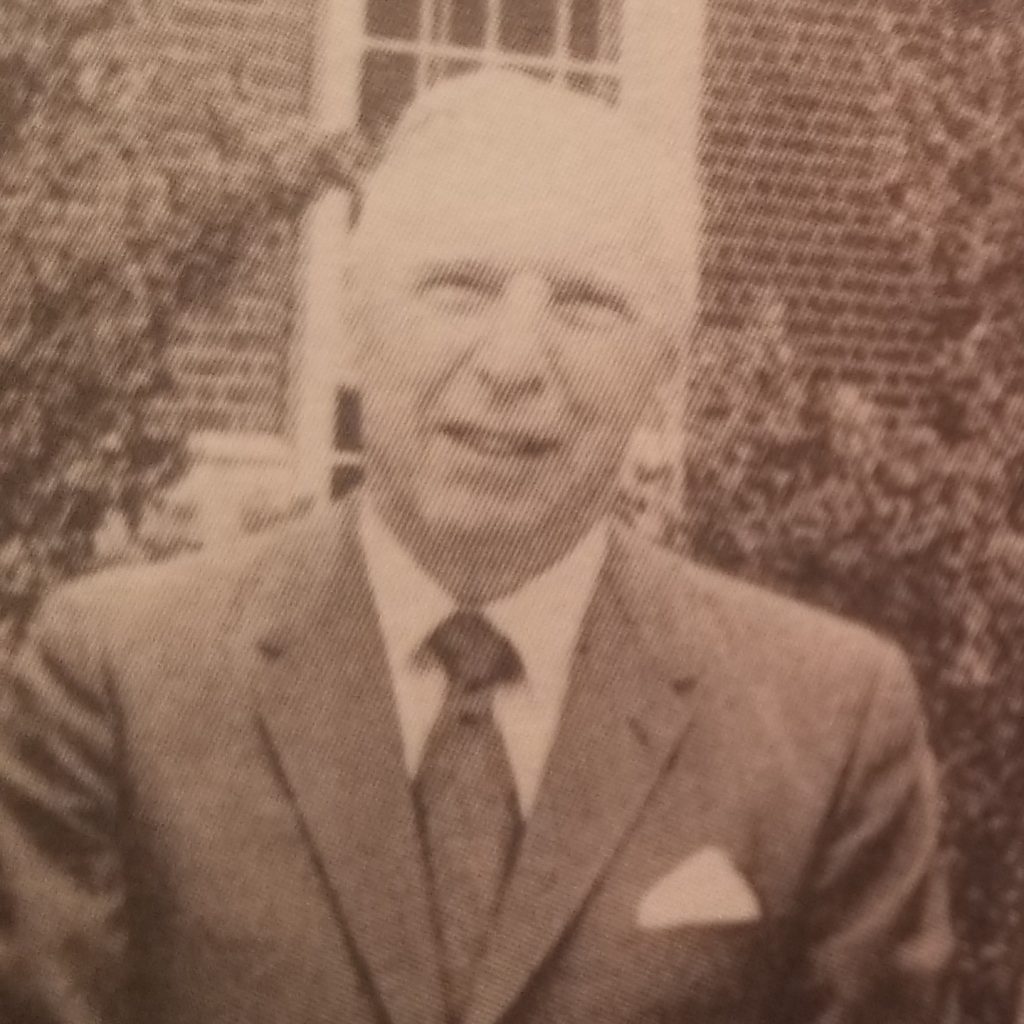
During his 21-year tenure as Dean of the Commerce School, Frank S. Kaulback Jr. had a profound impact on the School’s development. His association with the University began in 1930, when he came to Charlottesville as an undergraduate. He earned his master’s from UVA in 1942 and Ph.D. in 1945. He joined McIntire's Accounting faculty in 1946. Kaulback taught introductory and upper-level Accounting, and was one of the faculty members who petitioned then UVA President Colgate Darden regarding the separation of the Accounting department from the School of Economics.
The Commerce Council represents and supports undergraduate students in the McIntire School of Commerce by hosting and coordinating service and social events, outreach activities, and other various programs.
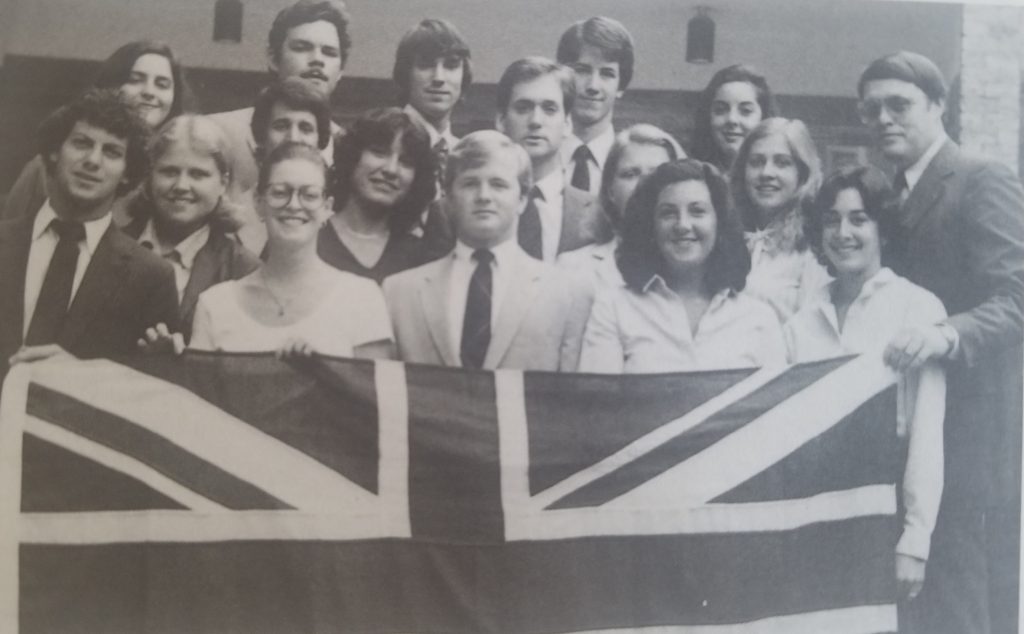
As businesses became global, business schools were confronted with how to provide students with a global business perspective. The initial strategy of the McIntire faculty was to offer some international courses and provide the faculty with international development opportunities so that they could redesign their courses to include such considerations. That approach was followed until 1994, when a new core course—Foundations of International Business—and an international concentration were offered.
Dean Frank Kaulback called on faculty be "educational entrepreneurs" and welcomed proposals of any kind to help grow business education at McIntire. The success of any proposal depended upon how strongly the idea was pushed by its champion.
In 1970, an effort began to encourage McIntire alumni to contribute annually to the School. McIntire alumni had not previously been solicited directly by the School for annual gifts; typically, gifts from McIntire alumni were sent directly to the UVA Fund (the UVA Alumni Association). Unless those gifts were specifically designated for the School, they were used for general University purposes. Two members of the 1970-1971 Commerce Council, John Petty (1971) and Dan West (1971), were involved in organizing the McIntire Alumni Association to strengthen the ties between the School and its alumni. On Oct. 17, 1970, the organizational meeting of the association was held, with about 35 McIntire alumni in attendance. In the fall 1971, the McIntire Alumni Association had 95 dues-paying members, and the inaugural issue of the Commerce newsletter was published to keep the School's alumni and friends better informed about McIntire's programs and achievements.
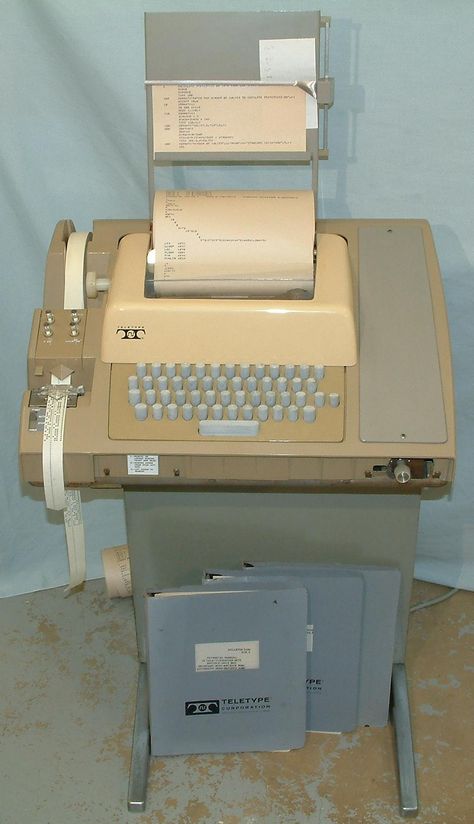
McIntire began investing in computing technology during 1971-1972, when a janitor’s broom closet in the Rouss Hall basement was equipped with five teletype terminals with access to the University’s mainframe computer. The terminals necessitated that the School use $500 of private funds, which were from the recently formed McIntire School of Commerce Alumni Association. This was the beginning of many private gifts to support the School’s computer facilities.
After approval was secured from the School's faculty and the University's administration for an M.S. in Accounting Program, the State Council of Higher Education for Virginia approved the graduate program, proposed by a committee assembled by Dean Kaulback and chaired by future Dean Bill Shenkir, in 1971. Five students entered the program, with Shenkir as the first Director, in the fall of 1972, after a national marketing initiative. The first M.S. in Accounting degree was awarded in 1974.
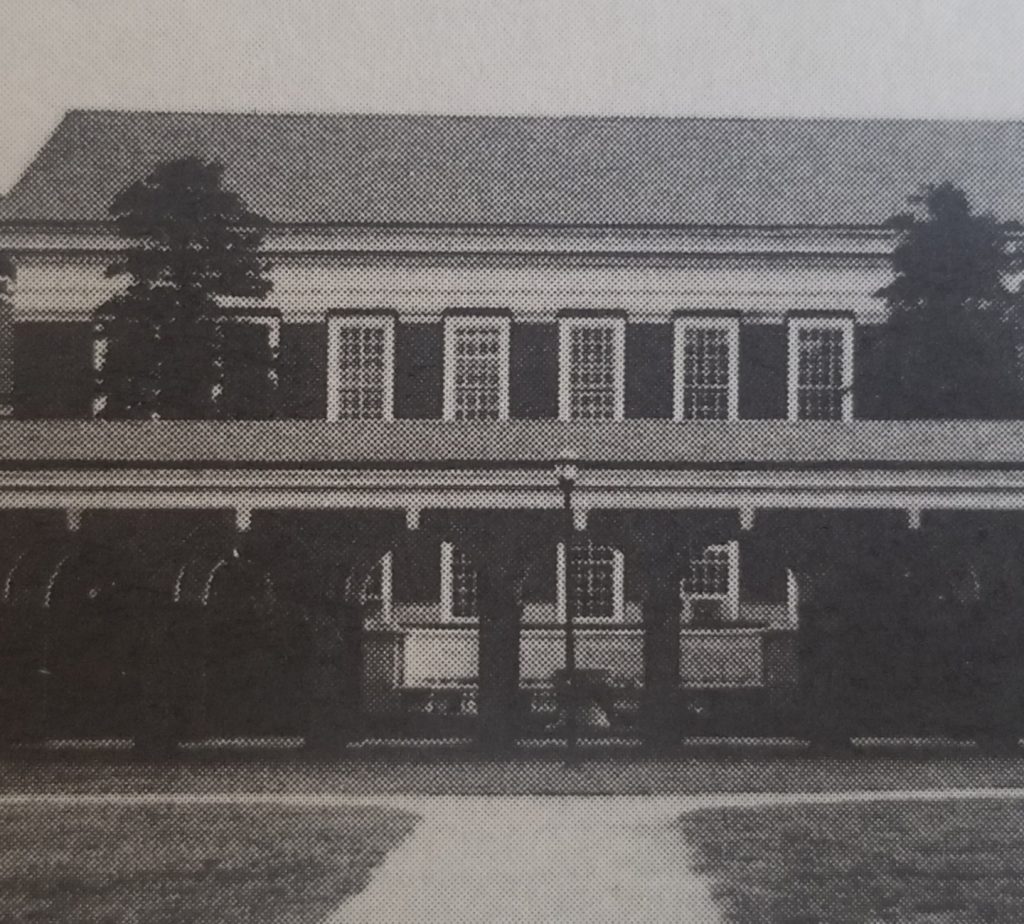
After a 20-year run in Rouss Hall, McIntire returned to Monroe Hall in 1975. During this same period, however, McIntire also experienced phenomenal growth. Before McIntire's return to Monroe Hall, approximately 320 students used the building. McIntire brought with it 620 students. In addition, classes and faculty offices were once again spread around Grounds. In 1978, Dean Shenkir submitted plans for a facilities expansion to the University's central administration. Thus was the inception of the Balfour Addition to Monroe Hall.
Today, the Advertising and Marketing Association at UVA provides students with the opportunity to learn about the advertising and marketing industries, as well as career paths in various areas of marketing, through speakers, panels, and other events throughout the year. AMA exposes its members to top careers in consumer market research, social media management, entertainment marketing, account management, creative art design, brand management, strategic planning, sports marketing, public relations, media buying, copywriting, consulting, and other major advertising and marketing careers. All students interested are welcome to join.
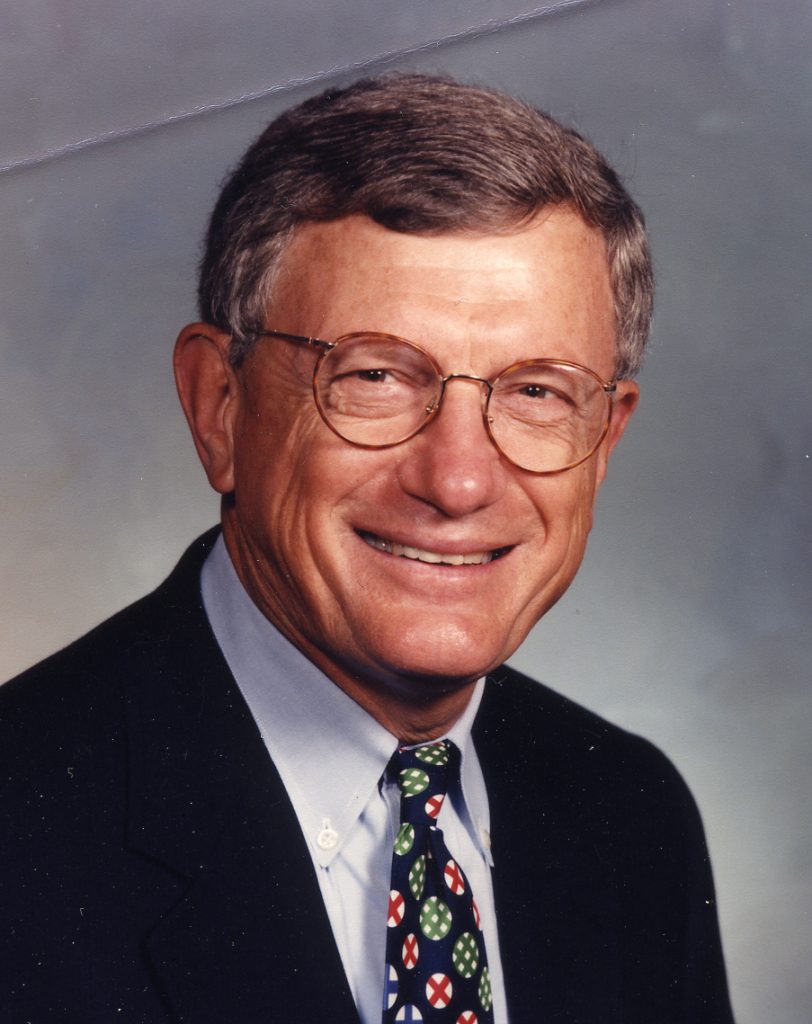
William G. Shenkir was appointed the second Dean of the McIntire School in 1977. During his term, McIntire was recognized nationally as a leader among business schools, expanded its faculty and physical resources, established an IT platform, and greatly broadened its financial base.
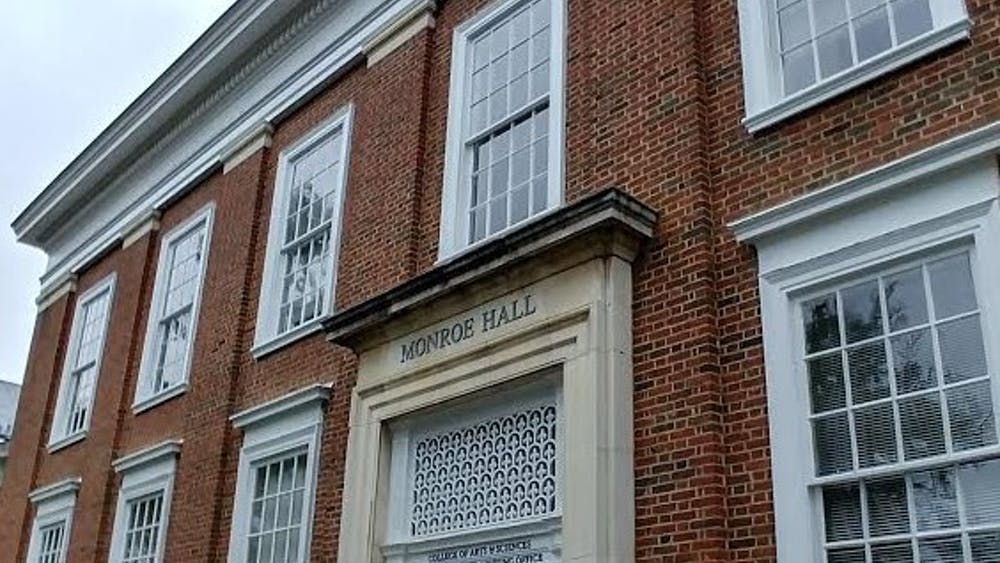
McIntire first appeared in a national ranking in 1978, when two faculty members, Tom Wheelen and David Hunger, undertook a study of deans of 200 accredited undergraduate business programs to learn what educational philosophies and goals shaped those programs, along with their relative importance, and what programs were seen as among the best. McIntire earned a top 10 ranking. In 1979, McIntire earned a #3 ranking among the top 10 undergraduate schools in a survey of personnel directors in Fortune's top 200 industrial firms and 250 non-industrial firms.
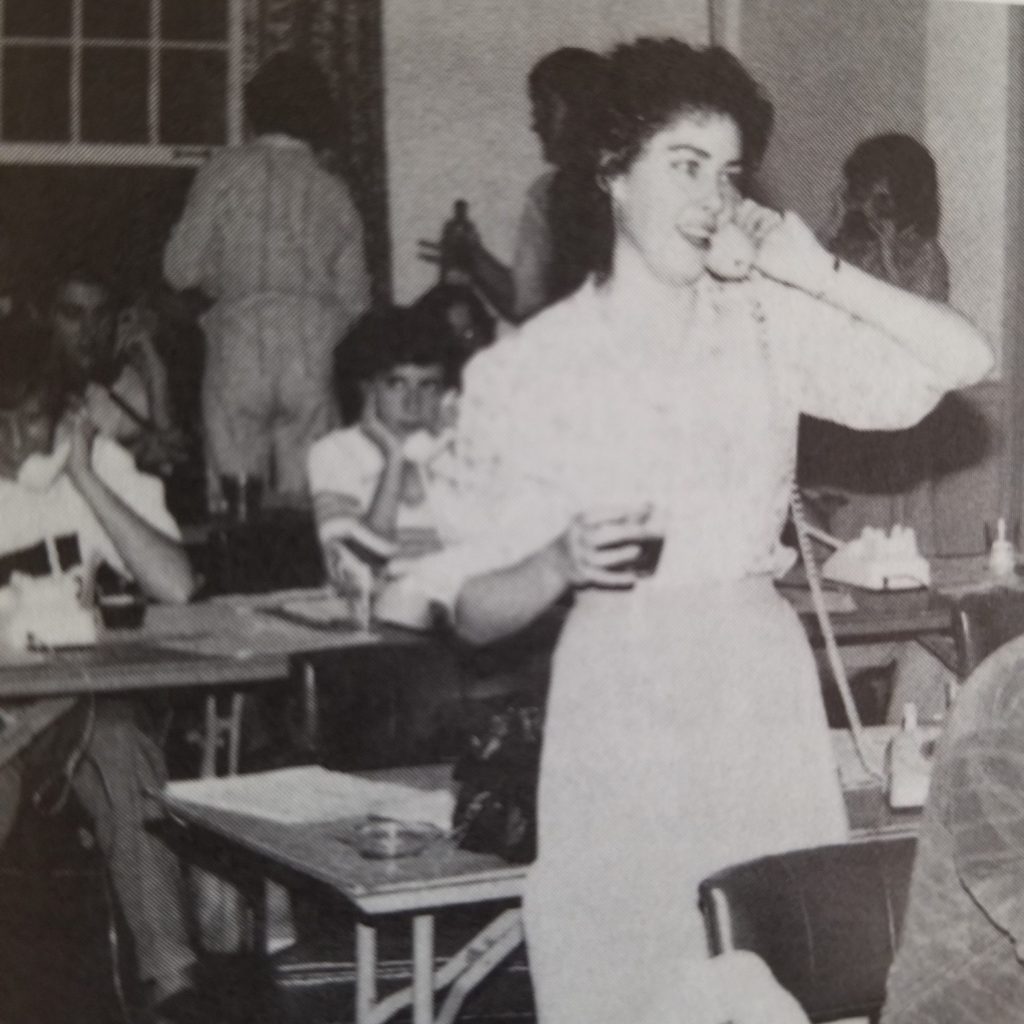
In the fall of 1979, the McIntire School took a bold step in fundraising, with "Update 79," the first phonathon conducted by one of the University's undergraduate units. The effort was the sole responsibility of an eight-student committee chaired by Meredith Tucker (McIntire 1980). Their work culminated with five nights of calling by 250 student volunteers reaching out to 2,400 of the 3,678 McIntire alumni and raising $40,000.
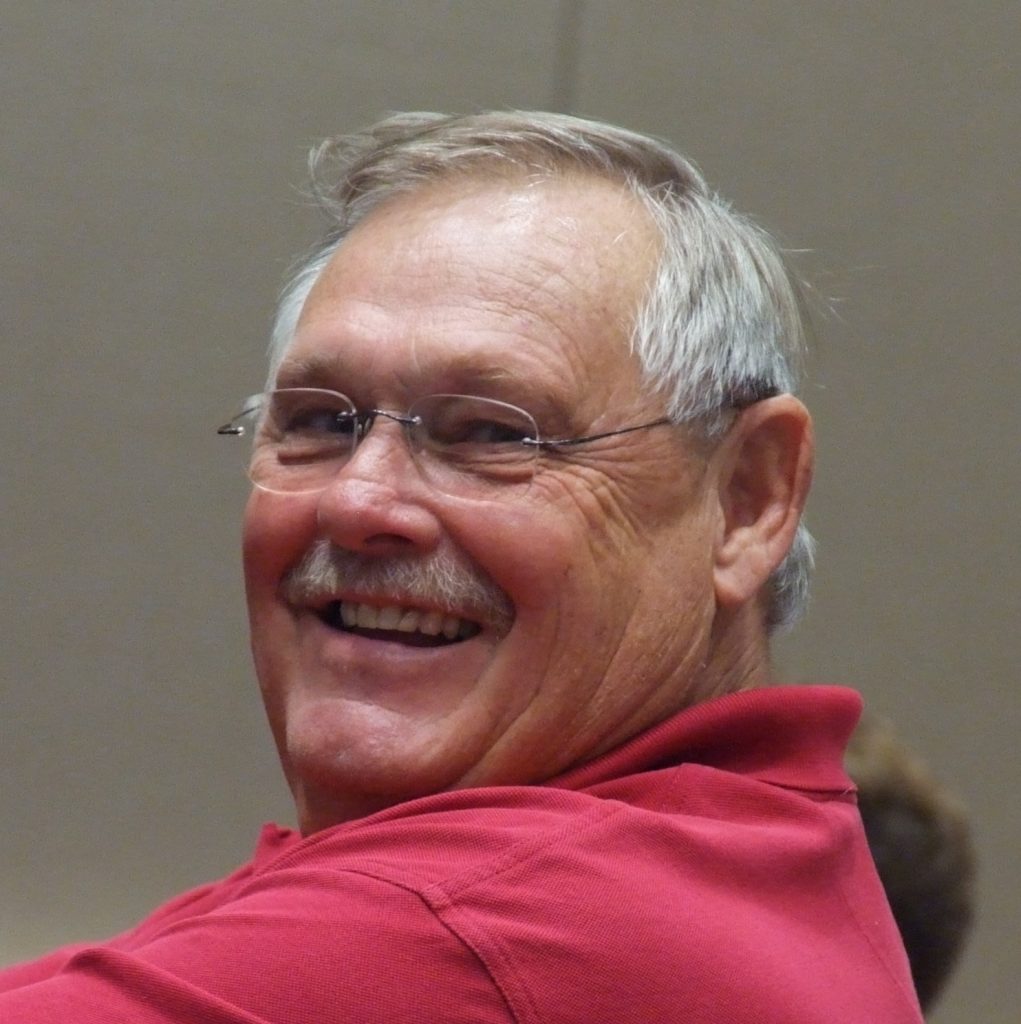
A former leader in Virginia banking made the comment to Dean Shenkir early in his tenure that the McIntire School had done more for banking in Virginia than any other business school. The Virginia Bankers Association had shown its appreciation by endowing a chair at the McIntire School in 1970. Another banking chair was established in 1974 by Arthur J. Morris. Also during the 1970s, Finance faculty, under the leadership of Professor Larry Pettit, forged close relationships with executives from numerous banks in order to provide career opportunities for McIntire students. It seemed appropriate for the School to have a center to link faculty interests to this important external constituency. Thus, the Center for Financial Services Studies was established in 1979, with Professor Jack Lindgren as its first Director.
In 1980, some faculty offices and student study rooms were moved to two large trailers outside of Monroe Hall in order to accommodate for the lack of space inside the building. In 1981, the AACSB conducted a report as part of a regular 10-year self-study and visitation, stating that McIntire's physical facilities "do not fully support the elevated standards of excellence that characterize other aspects of the school." Dean Shenkir then requested an External Evaluation Committee review the School through the University's Center for Advanced Studies. The School had never undergone such a review, which was funded by the center. In their report, the committee stated, "The loyalty of the student body has been put to trial by the outdated physical facilities...Proper physical plant and facilities should be a top priority item for the University and relief should be immediate."
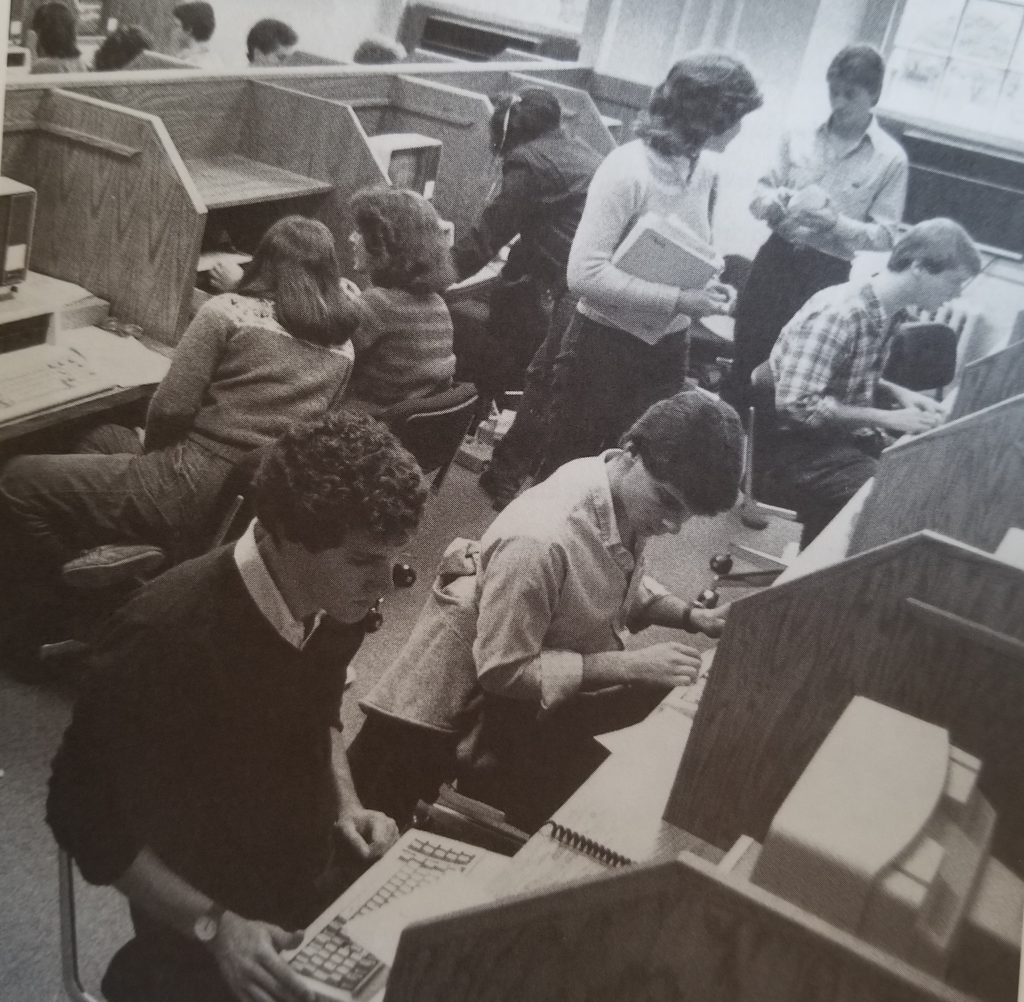
In the fall of 1981, a room was renovated in Monroe Hall to house 14 Apple microcomputers, financed with matching state and private funds and an $8,500 gift from Apple Computer. The computers arrived late in the fall semester, and some of the faculty were so eager for students to use them during the spring semester that they took them home over the holiday break to familiarize themselves with the new technology. McIntire’s “Apple Orchard,” as it was called, was the next step in the development of the School’s information technology platform.
McIntire, which had been accredited to offer an undergraduate program by the AACSB in 1925, was accredited by the same body to offer graduate accounting business programs in 1981. At the time, McIntire was one of only 13 schools in the nation, and the first in the state of Virginia, to receive accounting accreditation.
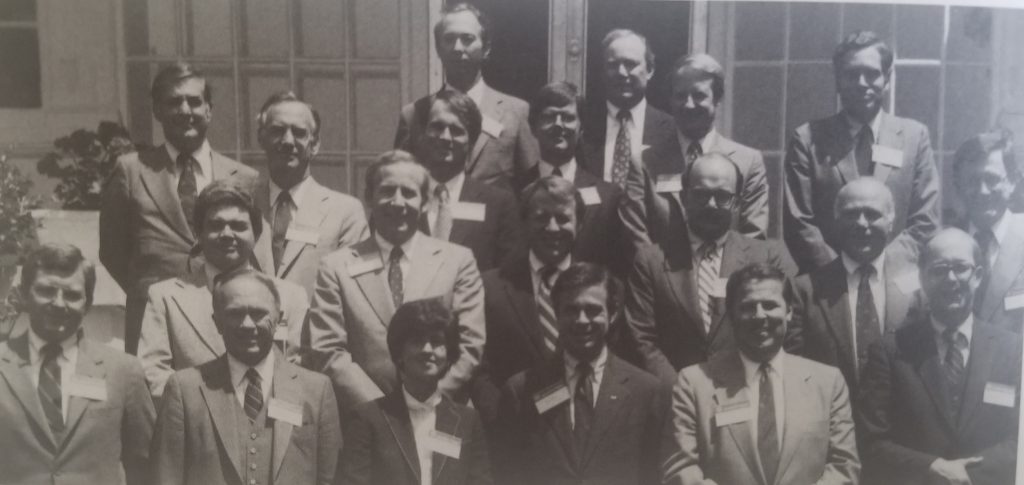
After roughly four years of groundwork, Dean Bill Shenkir invited a group of alumni to serve on the McIntire Advisory Board, which held its inaugural meeting May 14, 1981.
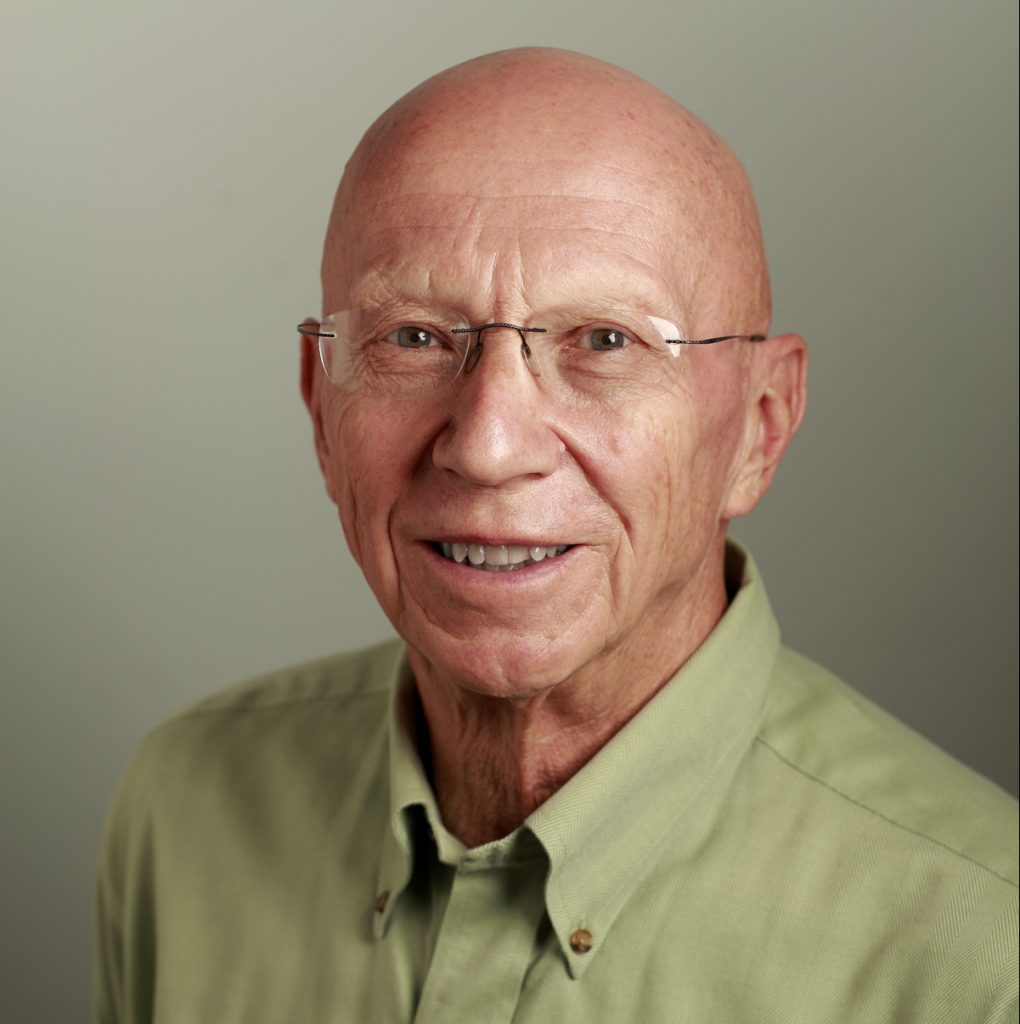
Commenting that "business should be viewed as an art as well as a science," the McIntire Advisory Board's first chairperson, Bill Crutchfield, noted that board members would help balance the more analytical, "scientific" aspects of business education with the art of their own personal business expertise. His words served as a consistent reminder for academia to be practical, realistic, and relevant.
In December of 1981, the School announced its first major capital campaign. As part of a $90 million campaign, McIntire set a fundraising goal of $5 million, of which $2 million was for the construction of a $5 million addition to Monroe Hall. When the campaign ended in December of 1984, McIntire had exceeded its construction fund goal, with $3.2 million raised from more than 400 individual donors. The effort was capped with the announcement in May 1985 of a $1 million gift from the L.G. Balfour Foundation of Massachusetts, which allowed for the completion of the building addition's third floor and basement. The trustees of this foundation indicated that they selected McIntire to receive the grant because they saw the School as a strong proponent of the free enterprise system.
In 1982, the Public Accounting Report ranked McIntire's undergraduate Accounting program the #8 undergrad program in the nation.
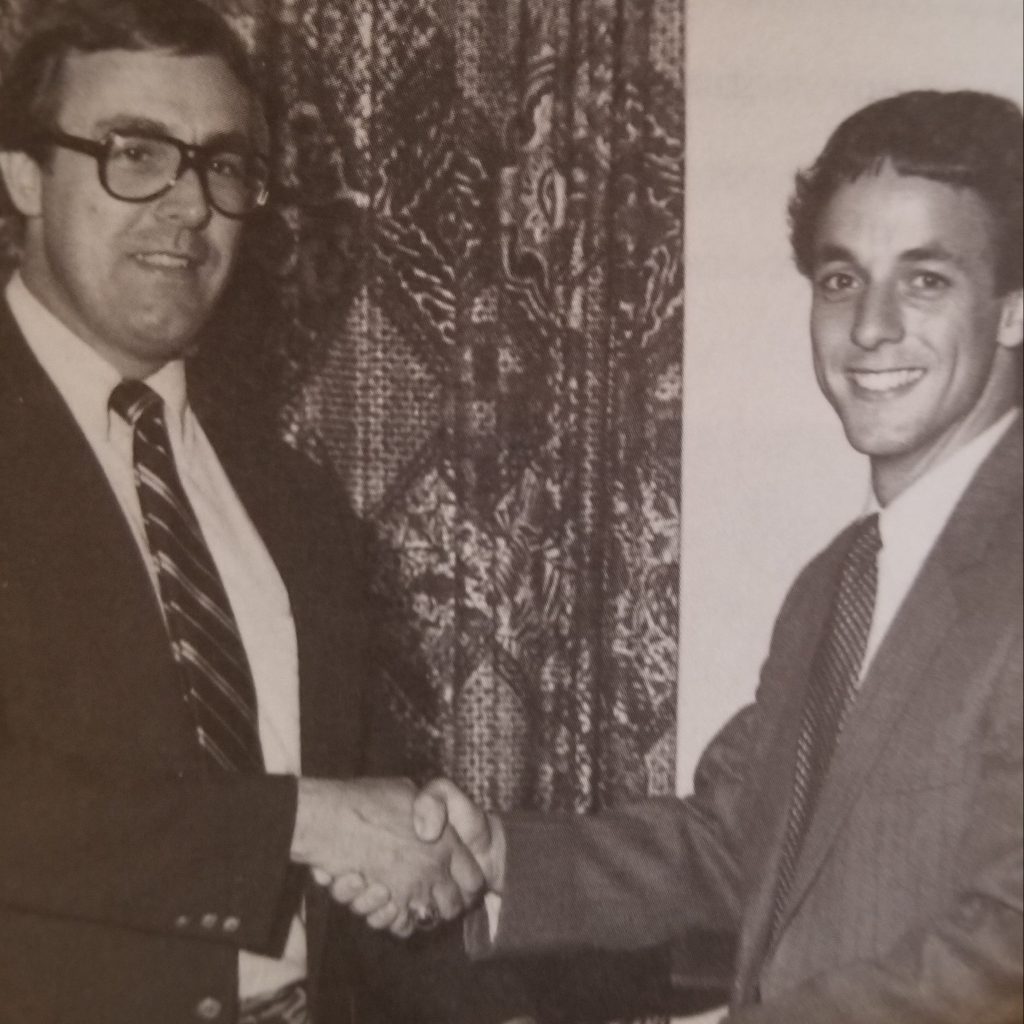
Sells Award Winner Michael Wildish (McIntire 1982) is seen here being congratulated by Accounting Area Coordinator Bill Boynton for earning the highest score in the nation on the CPA examination.
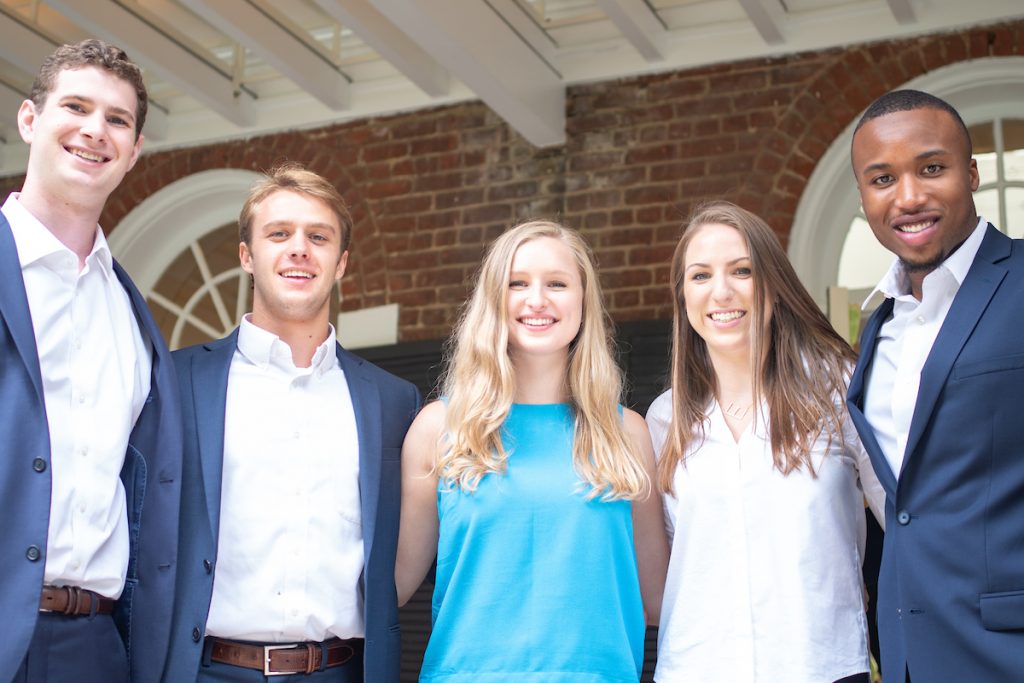
Drawing upon the success of various outreach programs, including the Ph.D. Institute, the School began offering the McIntire Business Institute in 1982. Beginning as a six-week intensive program to provide liberal arts students with the fundamental business skills vital to expanding their career horizons, MBI is still going strong, with the addition of an online version.
In 1985, the Public Accounting Report ranked McIntire's undergraduate Accounting program #6 in the nation.
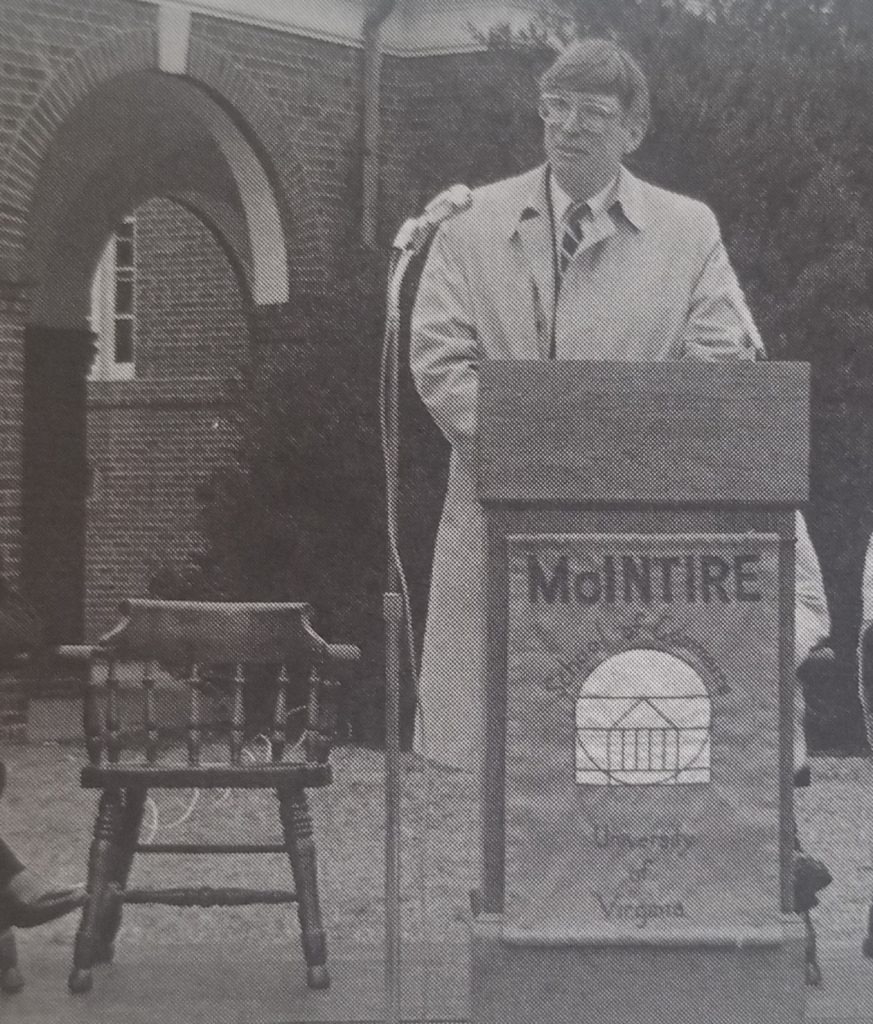
Construction of the Balfour Addition to Monroe Hall began with a groundbreaking ceremony in February 1986. Construction was completed in 18 months.
As the McIntire faculty increased in number during the late 1970s and 1980s, interest in offering other graduate programs developed. While several possibilities were discussed, including graduate opportunities in finance and marketing, the area that seemed to have a special niche in which to offer a master's degree was management information systems. Spearheaded by faculty member Elias Awad, the program passed the Faculty Senate and the Board of Visitors in 1988 and by the State Council of Higher Education the same year. With Awad serving as Coordinator of M.S. in MIS programming, the program began to welcome students in 1989.
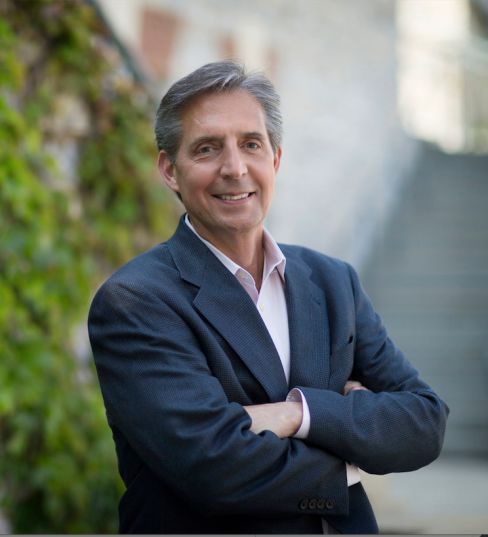
Launched in 1991, the Center for the Management of Information Technology (CMIT) is the third center established by the Commerce School. Professors Ryan Nelson and Dave Smith served as CMIT’s original Co-Directors, and today the Center remains under the leadership of Nelson.
In 1992, the faculty approved the establishment of the Center for Innovation in Business Learning, known today as the Center for Innovation in Professional Services (CIPS). Professor Jack Lindgren served as the first Director, and was succeeded by Professor Gib Akin. In 1994, Lindgren returned to the Director's position, focusing on offering a series of seminars on using multimedia technology in the classroom to the McIntire faculty. In 1995, Price Waterhouse Foundation contributed $500,000 to support the center, and their name was added to the center's title.
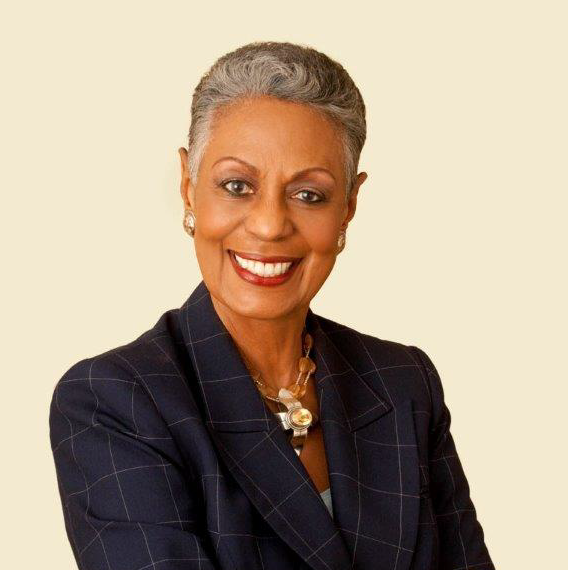
In 1992, Bonnie Guiton Hill became the third Dean of the McIntire School and the first Black academic Dean at the University. During her tenure, Hill continued efforts to increase the national visibility of the School, develop its international programs, and grow its financial resources.
In 1993, McIntire alum John Griffin (1985), President of Blue Ridge Capital, designated $100,000 from a $600,000 gift he gave to the School to the creation of a student-run investment organization.
In 1995, McIntire's M.S. in MIS (now M.S. in MIT) Program earned a #1 national ranking by Computerworld.
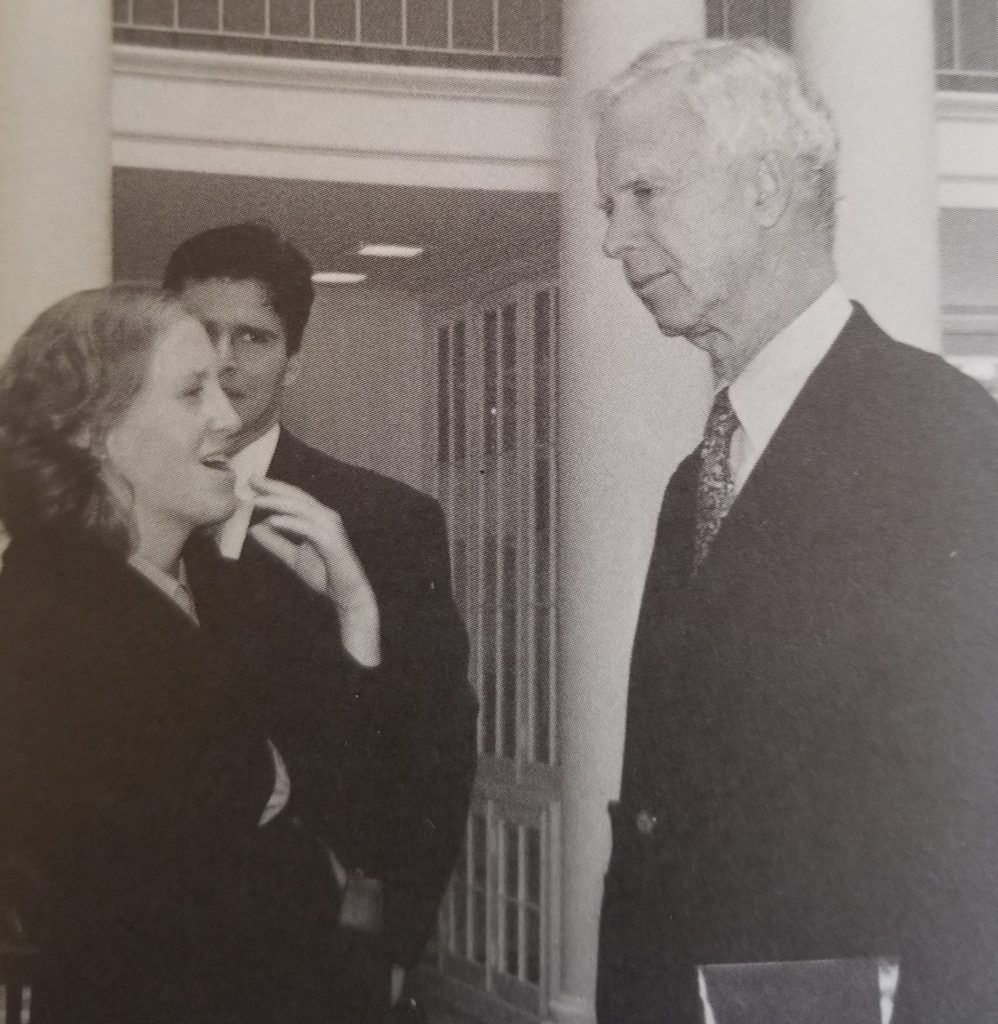
Securities and Exchange Commission Chairman Arthur Levitt Jr. talks with Commerce students after his address in the Dome Room of the Rotunda.
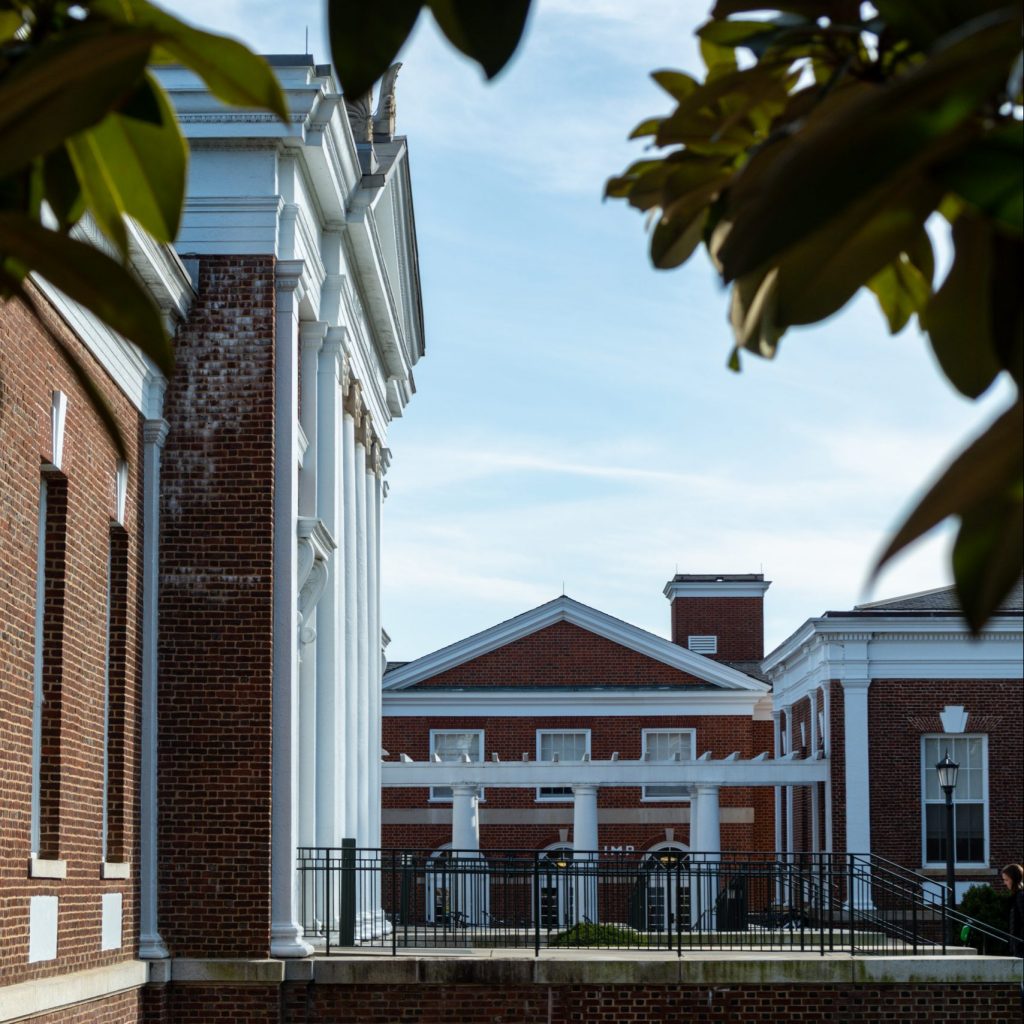
In 1996, McIntire received a top 10 national school ranking by U.S. News & World Report's guidebook, America’s Best Colleges.
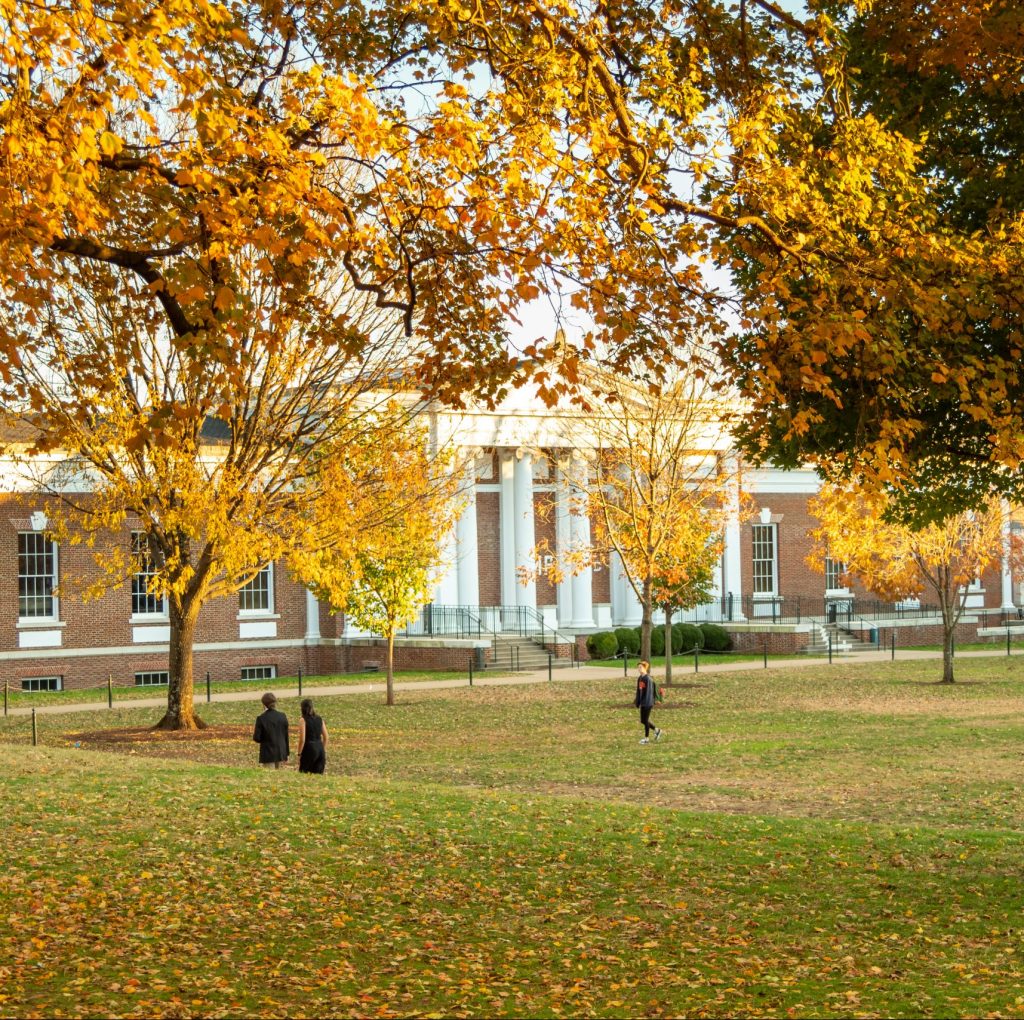
In 1996, Money magazine designated McIntire as a top “Big 10” undergraduate business program, one of the 10 “best places in the nation to study business," and the “most elite” program.
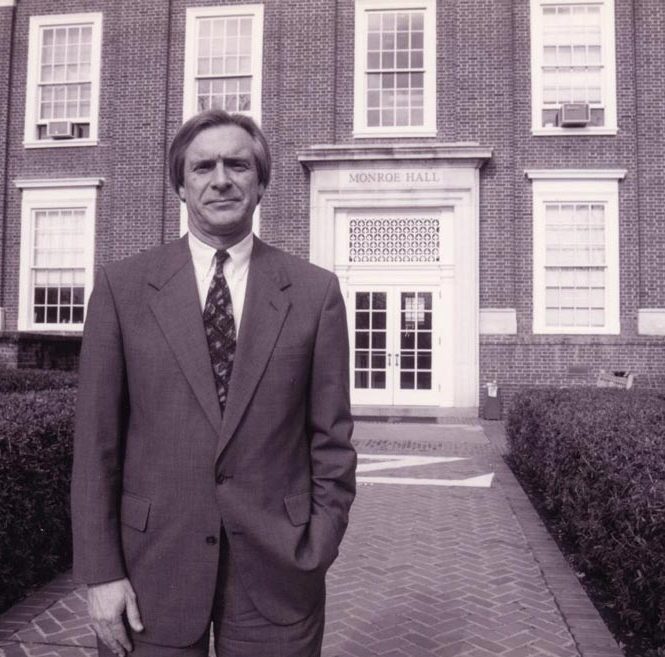
Carl Zeithaml served as Dean of the McIntire School for 23 years, joining the School in 1997 after spending more than a decade at the Kenan-Flagler Business School of The University of North Carolina at Chapel Hill. Prior to UNC, he served on the faculties of Texas A&M University and the University of Maryland. During his five terms as Dean of the Commerce School, Zeithaml led the implementation of McIntire’s strategy to achieve a position of global preeminence in business education.
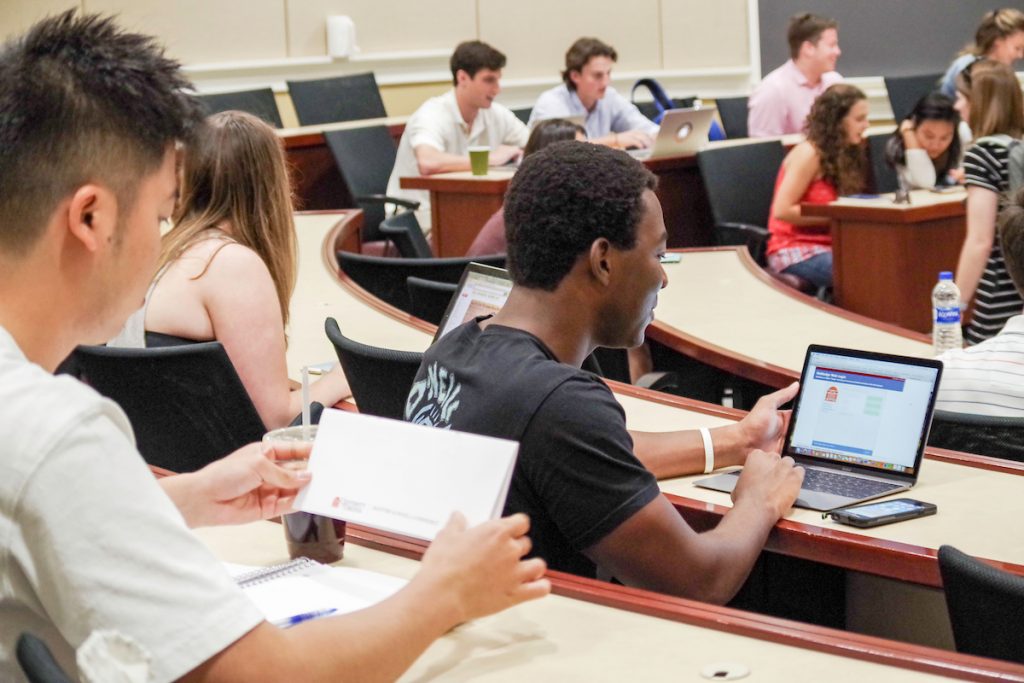
In the spring of 1999, the School received a competitive $450,000 grant from the GE Fund to underwrite the development and introduction of a revolutionary new model for the third-year undergraduate program known as the Integrated Core Experience. Dean Carl Zeithaml, Associate Dean Mike Atchison, and the McIntire faculty spent much of the year planning the hallmark program that is legendary for developing third-year students’ technical, analytical, strategic-thinking, and behavioral skills—all while providing real-world experience.
The McIntire School of Commerce’s Center for Investors and Financial Markets (CIFM) supports the exchange of ideas about finance through faculty research, curriculum innovation, and outreach.
McIntire welcomed the members of the new McIntire Cornerstone Society Board at its first official meeting in November 2000. Promoting McIntire’s planned giving efforts, the board assists in educational programs, identifies prospects, and advises the McIntire staff regarding marketing and gift stewardship.
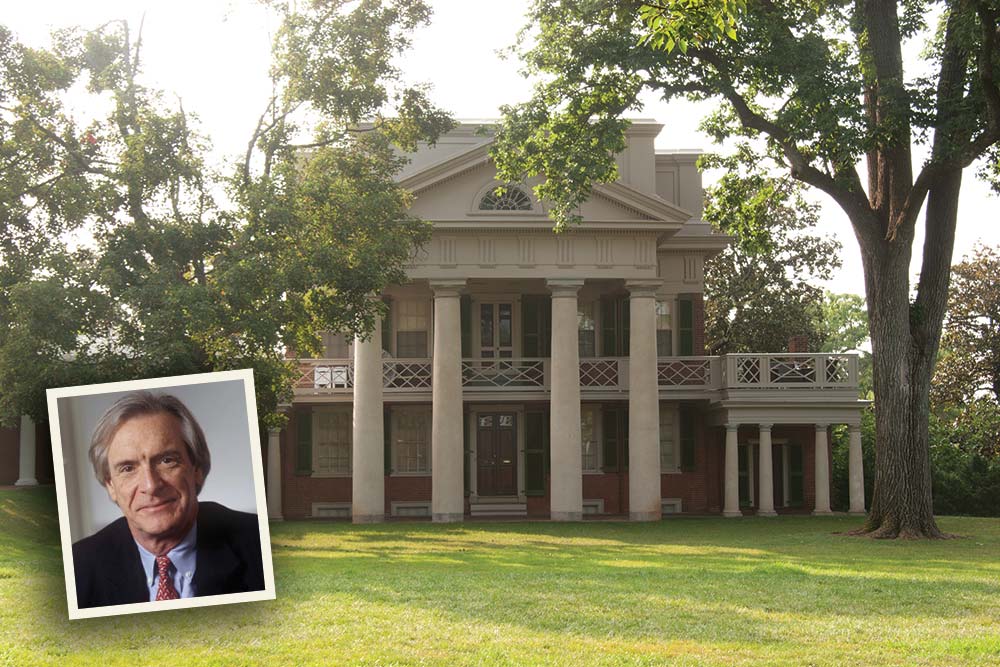
Carl Zeithaml became the McIntire School’s first dean to reside in the University’s famous Lawn buildings, designed by Thomas Jefferson. “I’m thrilled with the honor and opportunity that it presents for the School and my family,” Zeithaml said. “The Lawn is the center of the University, and it symbolizes the values that are great about UVA. We will maintain the tradition of an open pavilion by inviting students and alumni to visit us often.” The Zeithamls emphasized the traditional 19th century decor in the public areas of Pavilion X, and alumni were invited to participate in creating the pavilion's historic atmosphere.
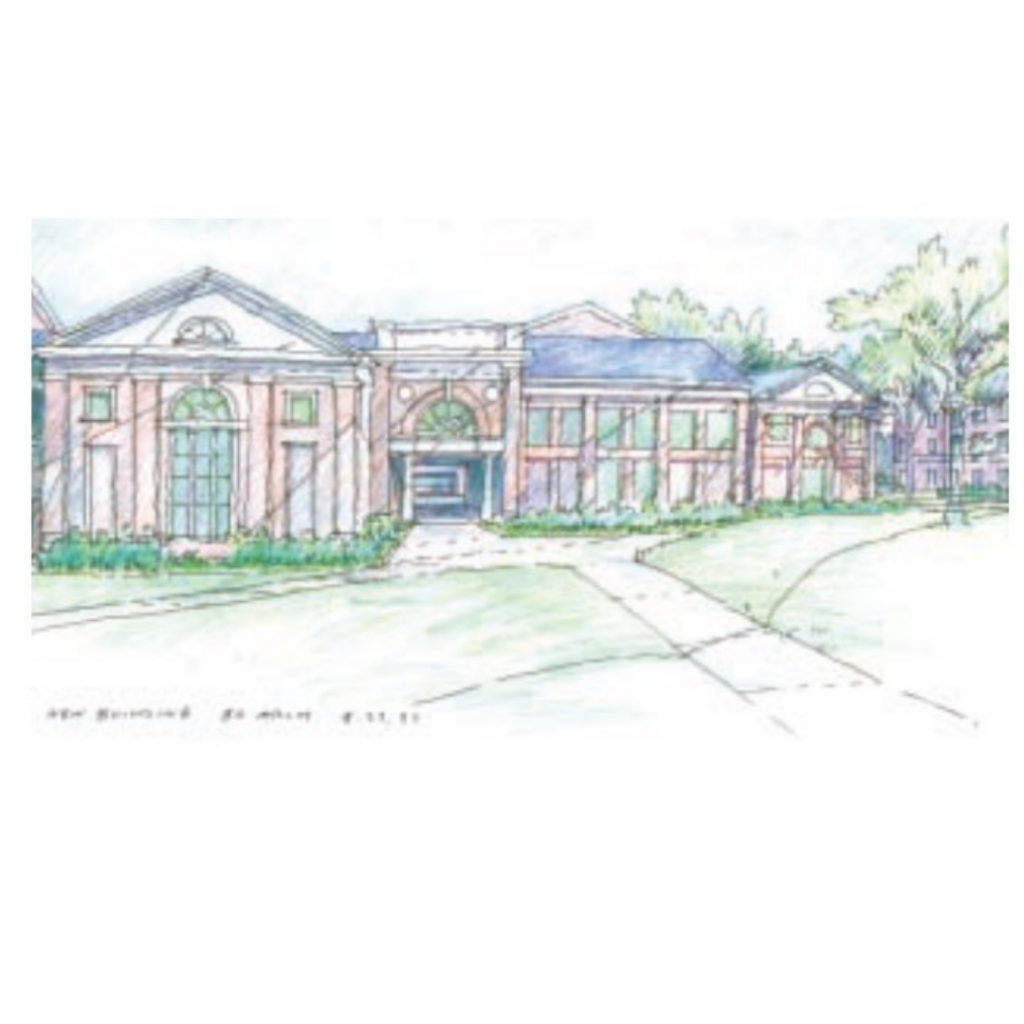
A 1999 building feasibility study initially demonstrated that the needs of students, faculty, and staff could be met by judicious space planning at the School’s Monroe Hall location. A $2 million gift from McIntire alumni Shelby Bonnie (McIntire 1986), John Griffin (McIntire 1985), and Jeffrey C. Walker (McIntire 1977) kicked off the ambitious building initiative.
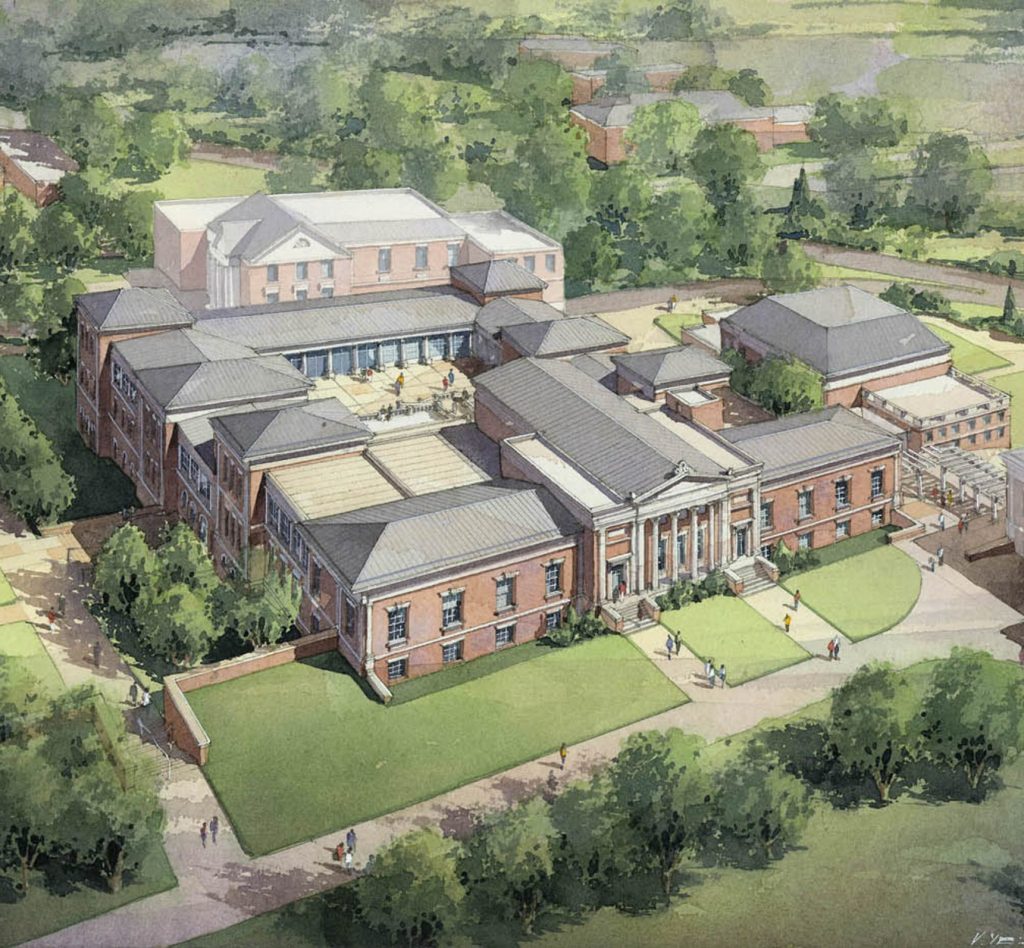
The Commerce School announced its plan to return to the Lawn in 2002. McIntire initially hoped to expand Monroe Hall, but the site proved inadequate to support the School’s programs. Then UVA President John Casteen lauded the initiative, saying the plan would “allow the College and the Commerce School to strengthen the academic and programmatic links between them and to better serve their undergraduate and graduate students.” Calling it an “exciting new model of education,” Casteen added that the joint venture by Dean Zeithaml and College Dean Ed Ayers “reflects ongoing University-wide discussions that encourage interdisciplinary initiatives and forward thinking.”
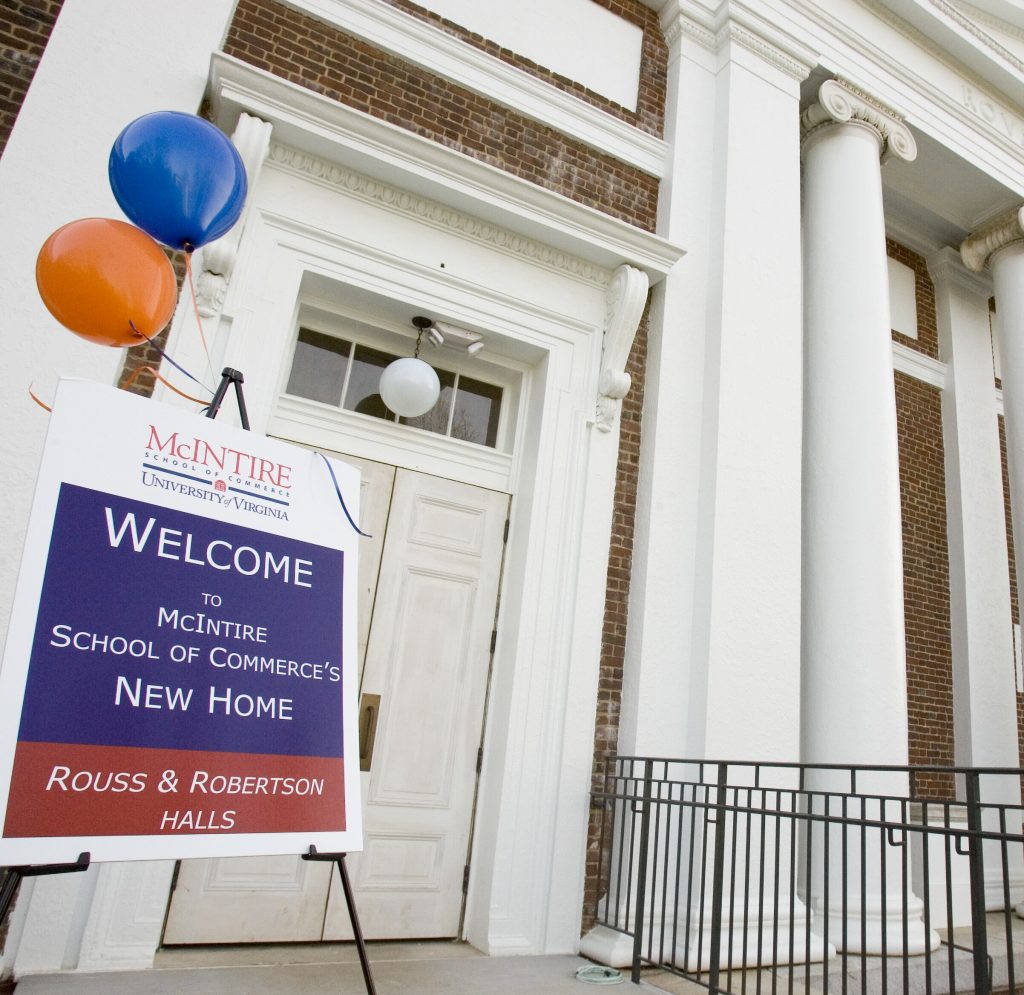
On Jan. 17, 2008, McIntire officially took up residence in its state-of-the-art new home on the Lawn, moving out of Monroe Hall, its home for the previous 33 years. The 156,000-square-foot facility is composed of historic Rouss Hall—which appears unchanged from the outside but was thoroughly renovated inside—and 132,000-square-foot Robertson Hall.
The McIntire School launched the M.S. in Commerce Program in September 2008. This unique pre-experience master's program was designed to help recent graduates of liberal arts, science, and engineering programs turn their intellectual and academic skill sets into focused business expertise. Students complete an Integrated Curriculum Program as well as McIntire's unique Global Immersion Experience.
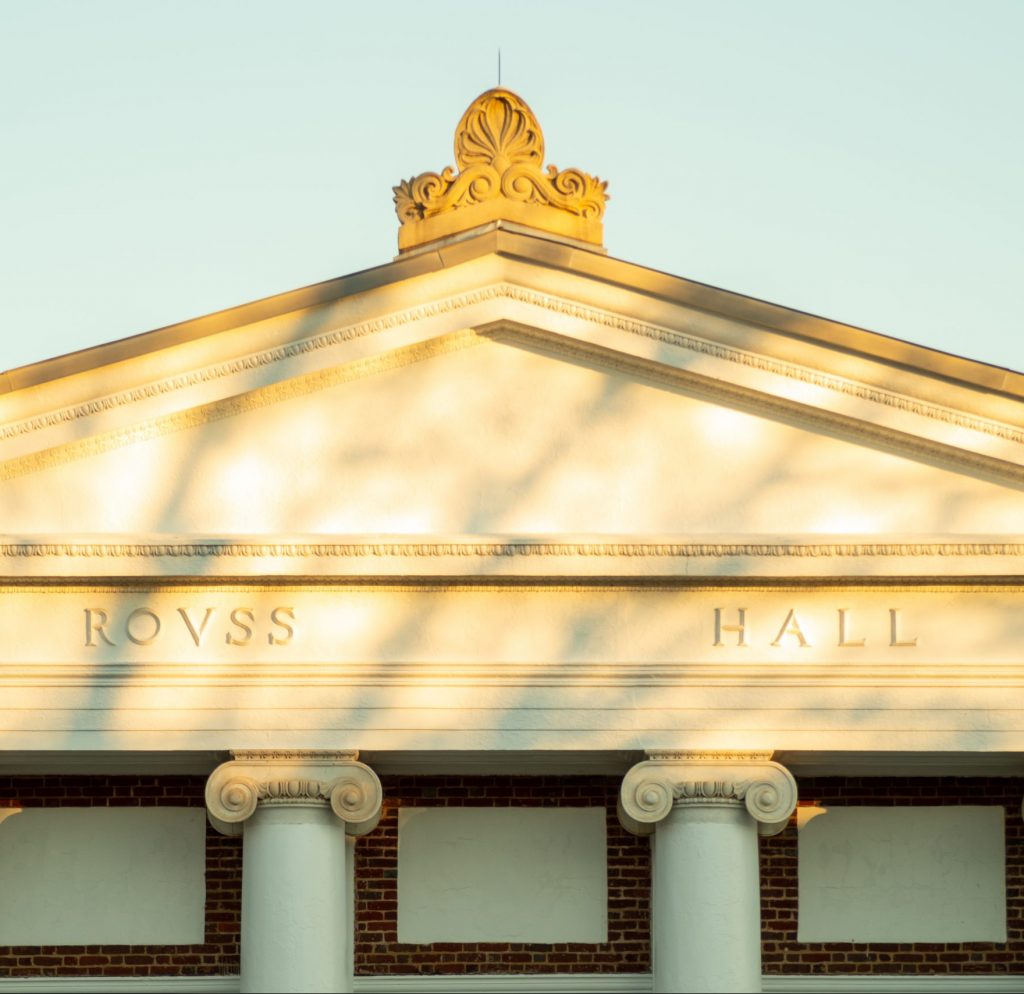
The McIntire School of Commerce claimed the top spot among the nation’s best undergraduate business programs, according to BusinessWeek’s annual rankings.
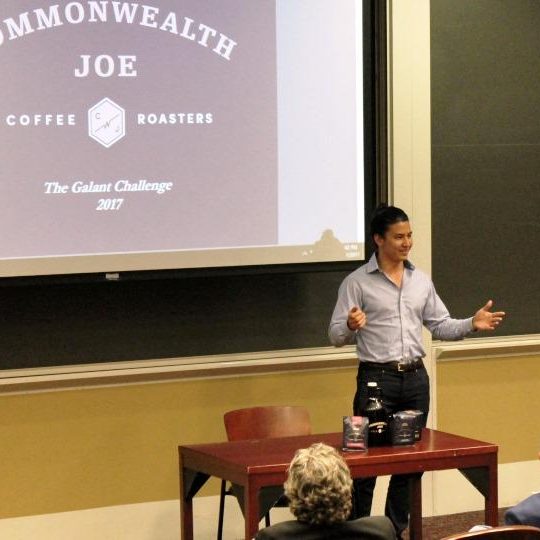
Launched in 2010 with an endowment from alum Mark E. Galant (1980), the Galant Center develops and supports programming and curriculum, a pitch competition (the Galant Challenge, which has funded ventures millions of dollars in capital), educational events, and student groups in an effort to catalyze entrepreneurial activity within the McIntire School, across Grounds, and beyond the University of Virginia.

In early 2016, SCHEV formally approved McIntire's innovative new graduate program, the M.S. in Global Commerce (now known as Global 3), with the first class matriculating in fall 2016.
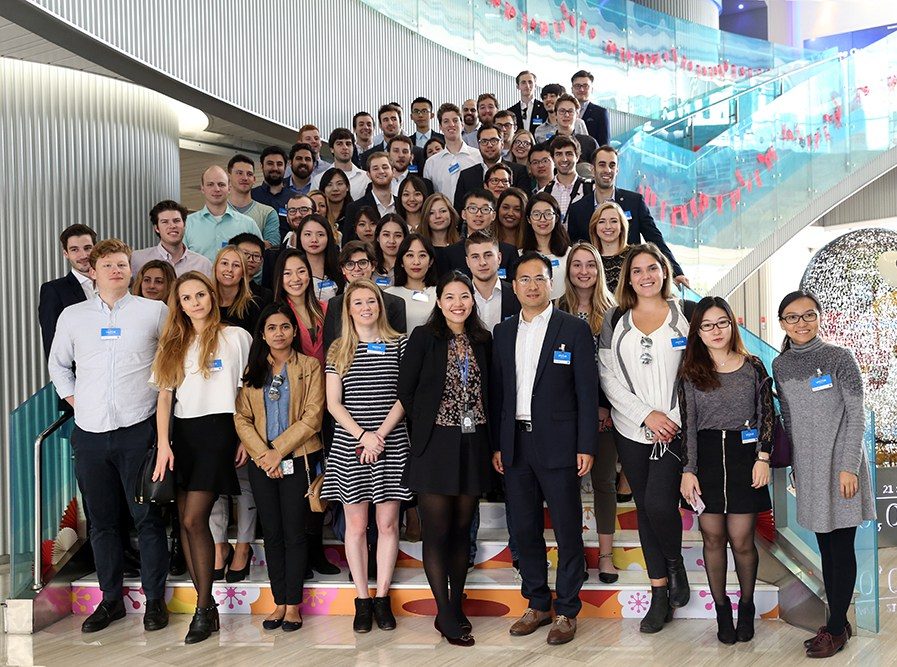
Offered by the McIntire School in partnership with two renowned business schools—Esade Business School in Barcelona, Spain, and Lingnan (University) College at Sun Yat-sen University in Guangzhou, China—the program allows students to earn an M.S. in Global Commerce from McIntire, an M.S. in Global Strategic Management from Esade, and a certificate in International Business from Lingnan over the course of a year, as well as develop the skills needed to thrive in an increasingly globalized business environment.
In 2017, McIntire's M.S. in Accounting Program earned the #2 spot in the Top 25 Master's in Accounting Schools with Fewer Than 17 Full-Time Accounting Faculty by the Public Accounting Report.
As McIntire prepared for its Centennial, the School launched a special fund for faculty excellence.
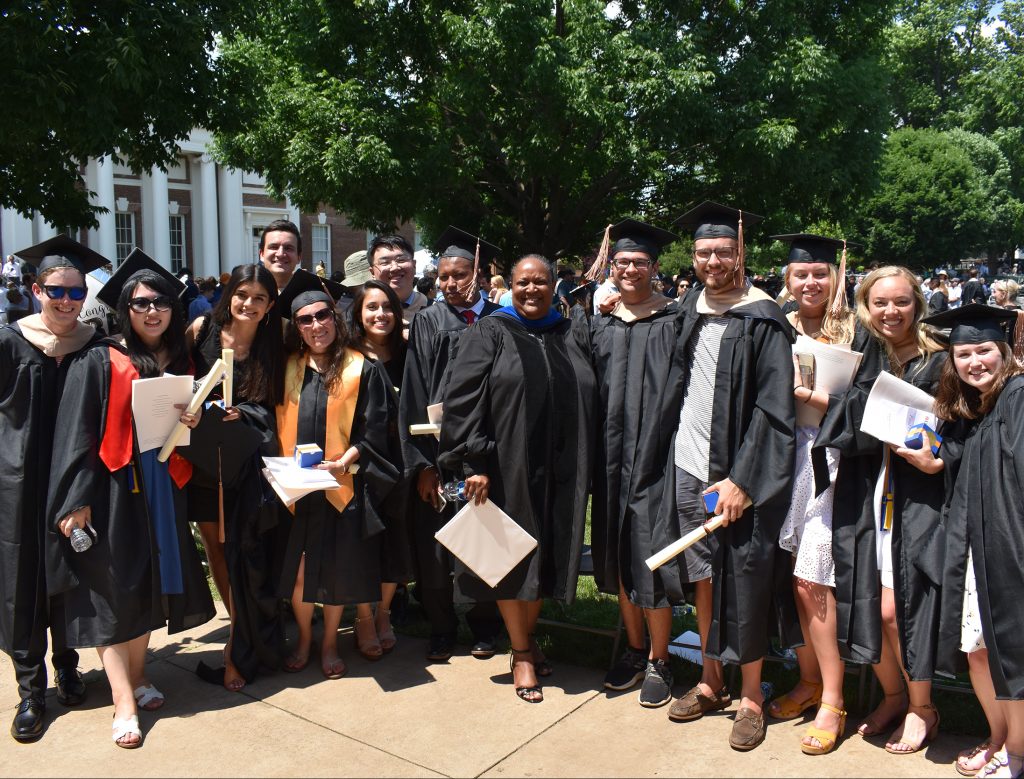
In 2018, the NASBA Report ranked McIntire #5, out of 769 institutions, for first-time CPA exam pass rate.
To support the McIntire School in its mission to maintain a leadership position in global business education and research, the School created the McIntire Global Advisory Board.

Established in 1994 with a $100,000 gift from alumnus, Board of Visitors member, and Visiting Scholar John A. Griffin, who founded the hedge fund Blue Ridge Capital, the McIntire Investment Institute has steadily grown that initial investment over the past 25+ years, with members working together to research and pitch companies, purchase and sell stocks, and carefully manage their investments.
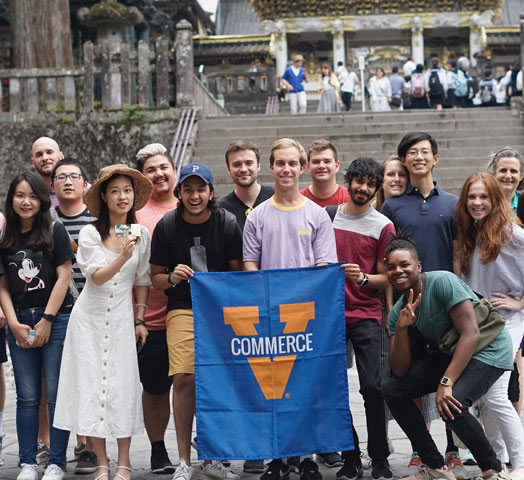
The Economist ranked the McIntire School's M.S. in Commerce as the top U.S.-based master’s in management (MiM) program and sixth worldwide in 2019.
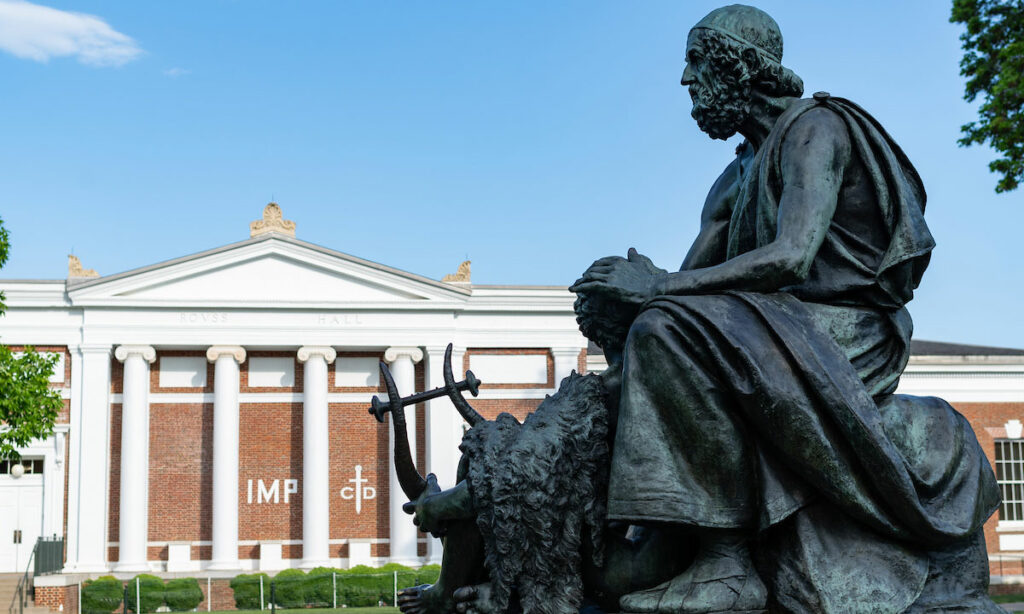
John Griffin (McIntire '85) establishes the John A. Griffin Deanship, with an overall impact gift of $10 million.
Since January 2020, a UVA team met regularly to prepare for the potential impacts of COVID-19 on the University, with Dean of Students Allen W. Groves offering travel guidance and reminding students of spring break health and safety in a Feb. 26 message. On March 11, with the number of cases increasing in the U.S., UVA President Jim Ryan announced that all classes would move online starting March 19 and urged students away on spring break to return or remain home. In May 2020, UVA offered its first ever online-only graduation ceremony.
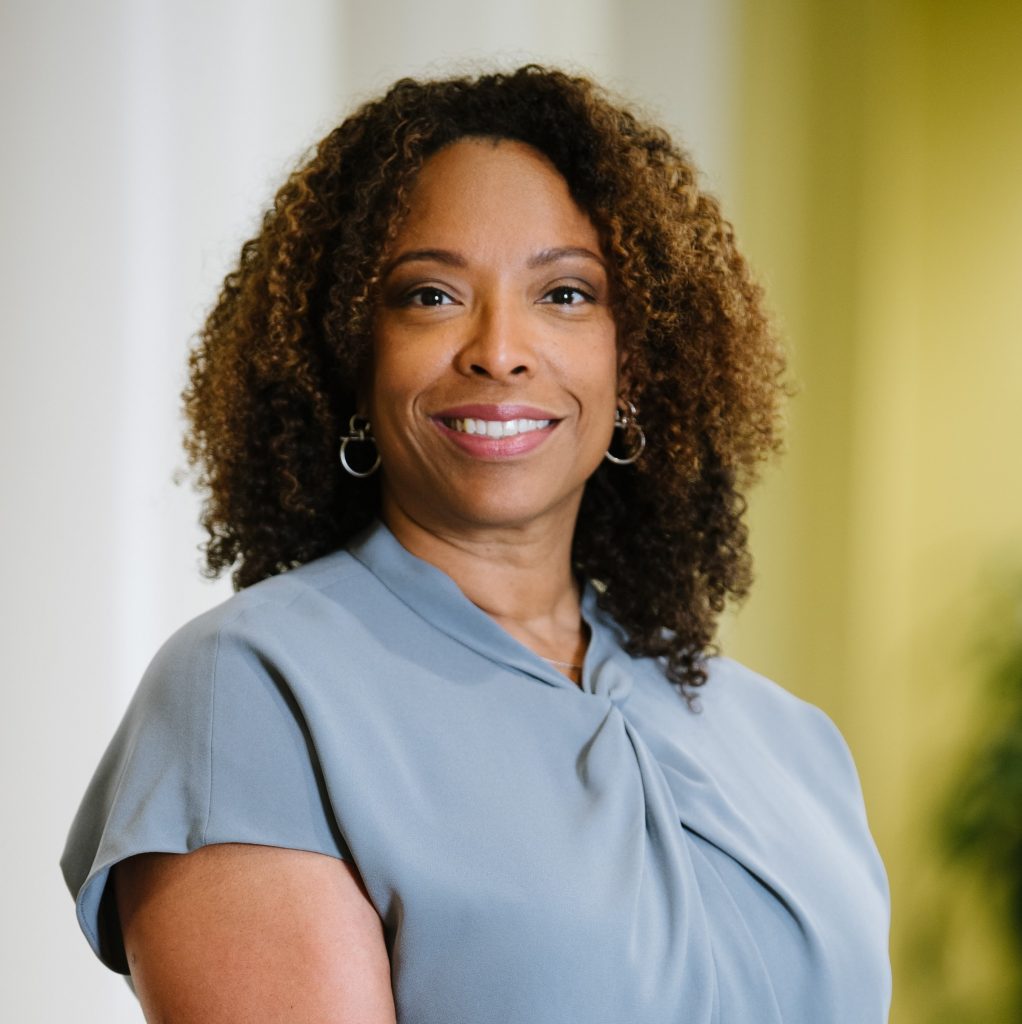
Nicole Thorne Jenkins became the John A. Griffin Dean of the McIntire School of Commerce at the University of Virginia on July 1, 2020. Prior to arriving at McIntire, Dean Jenkins was the Von Allmen Endowed Chair of Accountancy and Vice Dean in the Gatton College of Business and Economics at the University of Kentucky. Prior to Kentucky, she served on the faculty at Vanderbilt University and Washington University in St. Louis. Dean Jenkins received her Ph.D. in Accounting from the University of Iowa and completed her undergraduate work in Accounting and Finance at Drexel University.
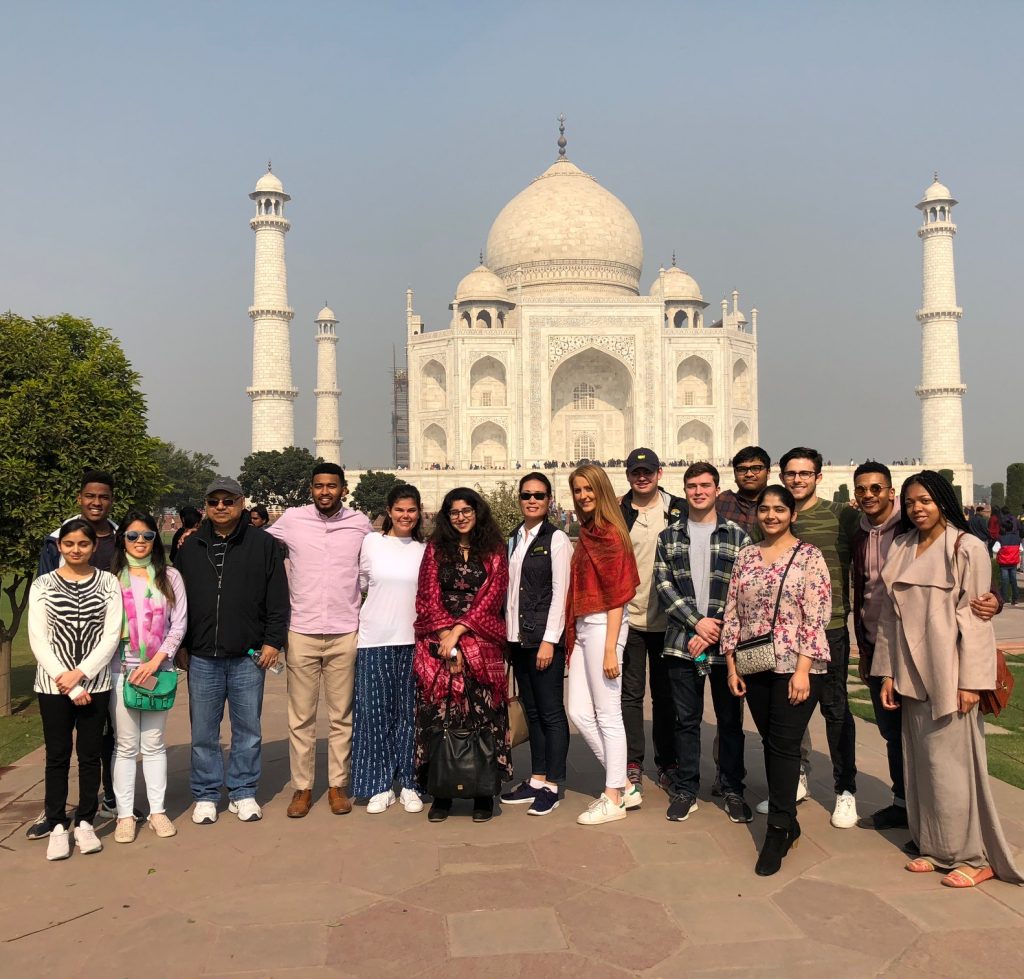
In 2020, McIntire's M.S. in Commerce Program earned a #2 ranking in Value Colleges' Top 25 Best Value Master's in Management Programs.
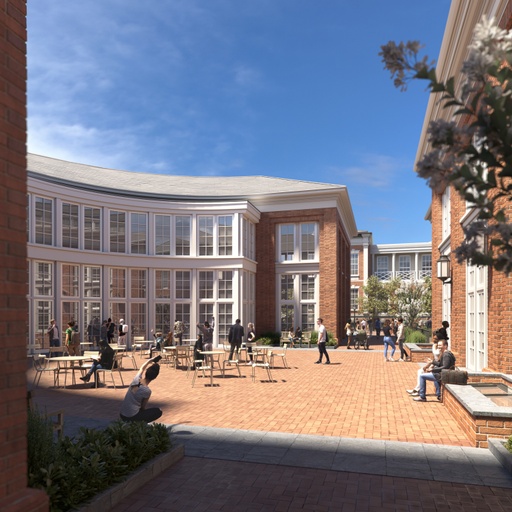
A $30 million gift from The Chris & Carrie Shumway Foundation serves as initial funding for McIntire's next building project, which is underscored by the School's commitment to inclusivity. Areas have been intentionally designed to provide hospitable, comfortable learning spaces. Among other considerations such as primary entrances, traffic patterns, and connectivity between buildings, Ruppel Drive will be transformed into a green, pedestrian-friendly, ADA-compliant entrance to the University at Brandon Avenue and Jefferson Park Avenue.
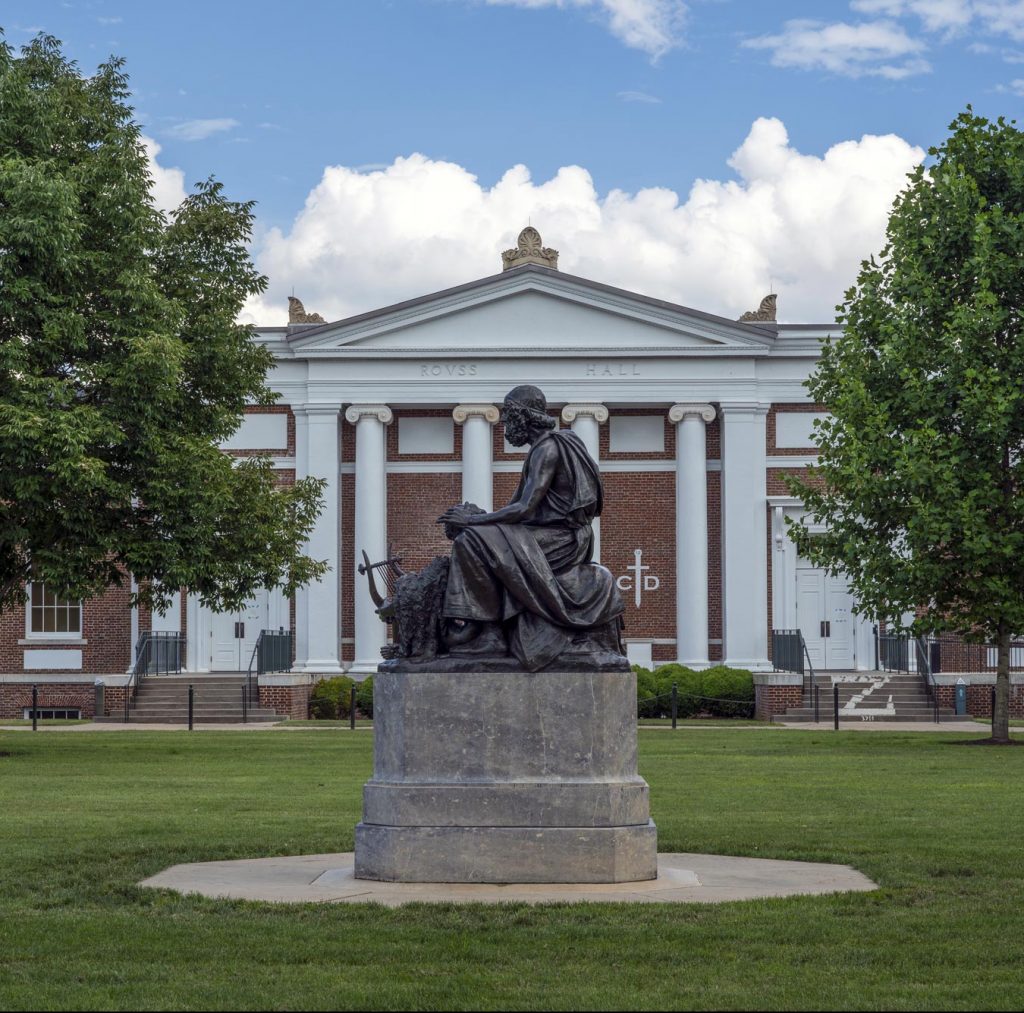
Poets&Quants for Undergrads ranked the B.S. in Commerce Program #2 among the nation’s best undergraduate business programs.
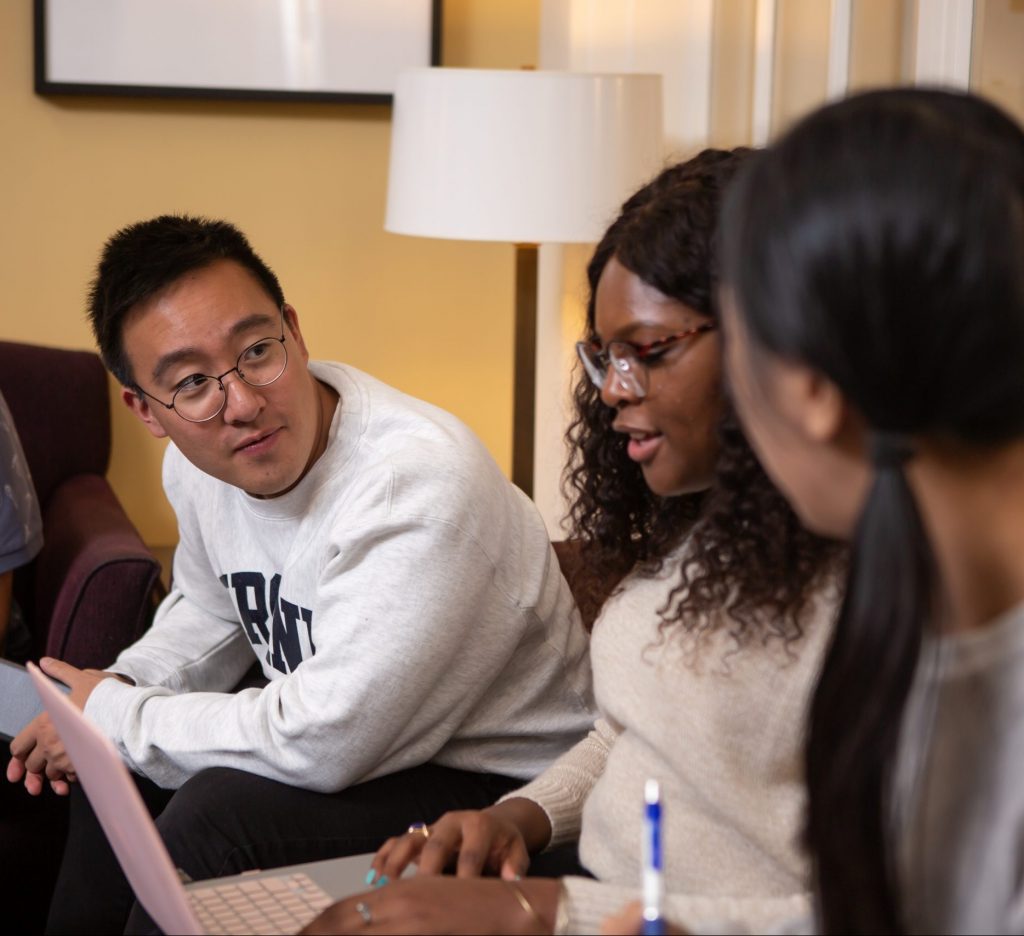
In 2021, the TFE Times ranked McIntire's M.S. in Accounting Program #7 among the best master's in Accounting programs.
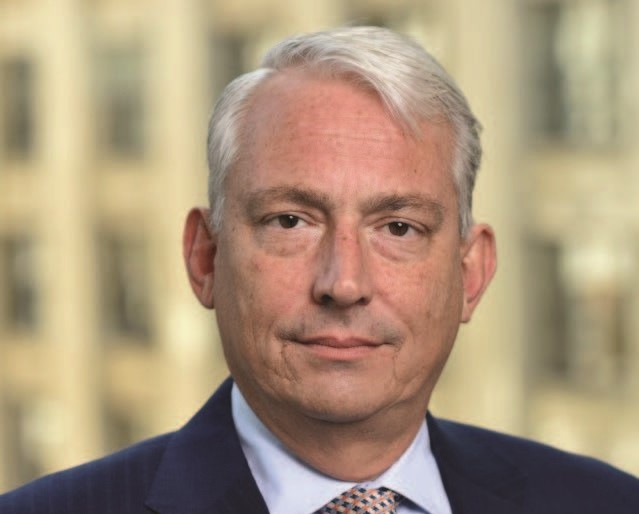
With a $10 million commitment from Robert M. White Jr. (McIntire ’87), UVA establishes what eventually becomes the White Ruffin Byron Center for Real Estate. As of March 2025, McIntire had secured $342 million in total philanthropic impact, including matching support from the University.
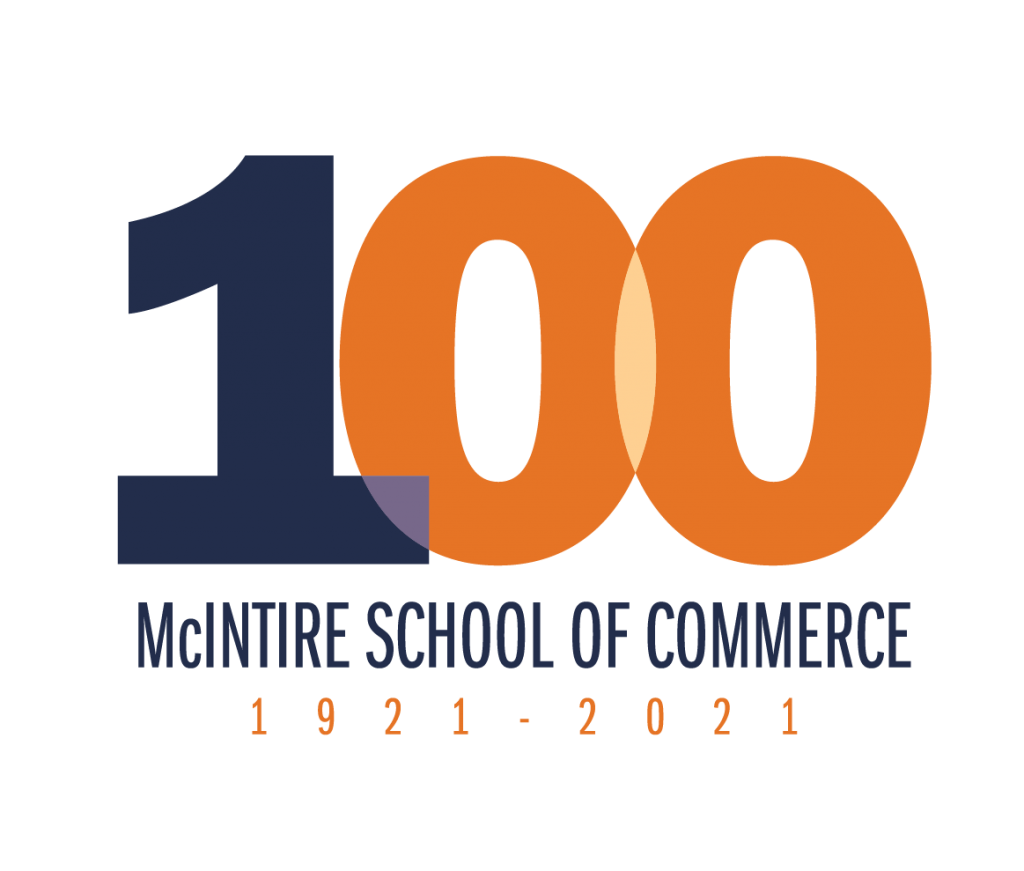
After the COVID-19 pandemic forced a nearly yearlong delay in kicking off the Centennial, McIntire is finally able to celebrate 100 years of leadership in business education.
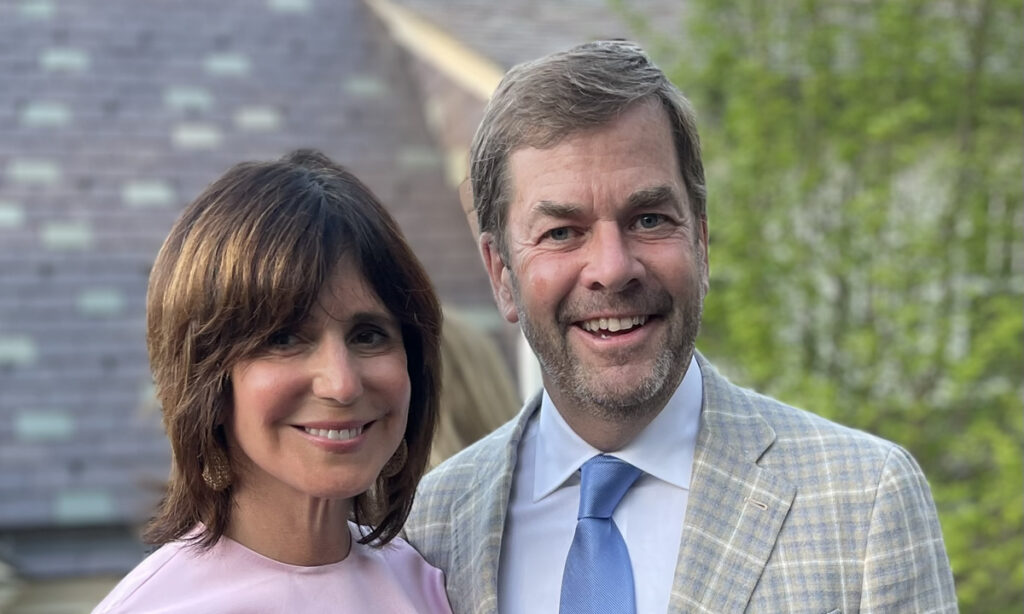
Stephanie and John Connaughton (McIntire ’87) commit $10 million for Commerce for the Common Good, funding need-based scholarships, classes, and programming to advance the role of business as a force for good in society and endowing the annual Connaughton Speaker Series. The gift is matched by UVA’s Strategic Investment Fund, creating $20 million of impact.
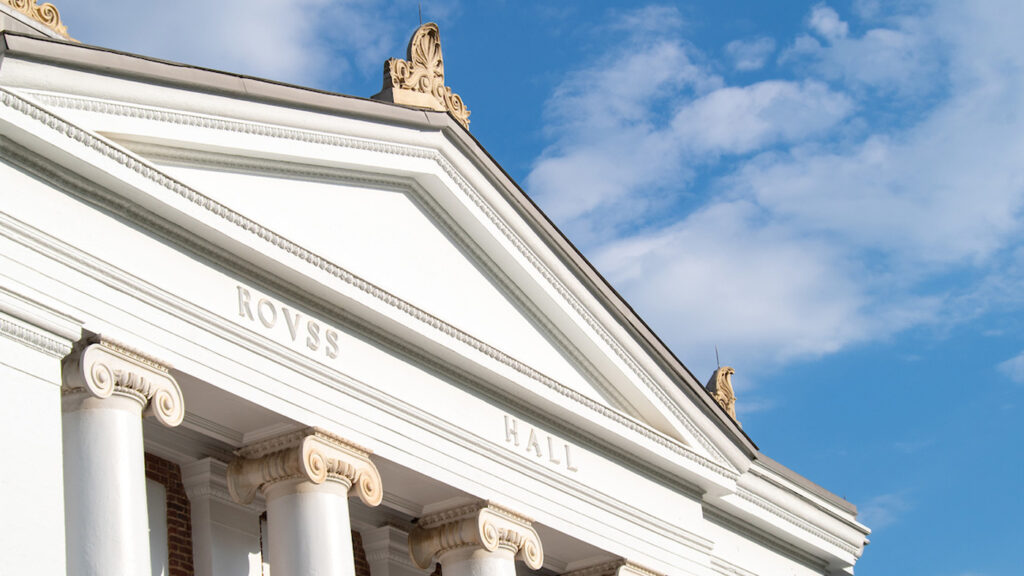
The Virginia General Assembly passed a resolution celebrating McIntire’s Centennial and recognizing the School's exceptional student experience, curricula, scholarship, and community.
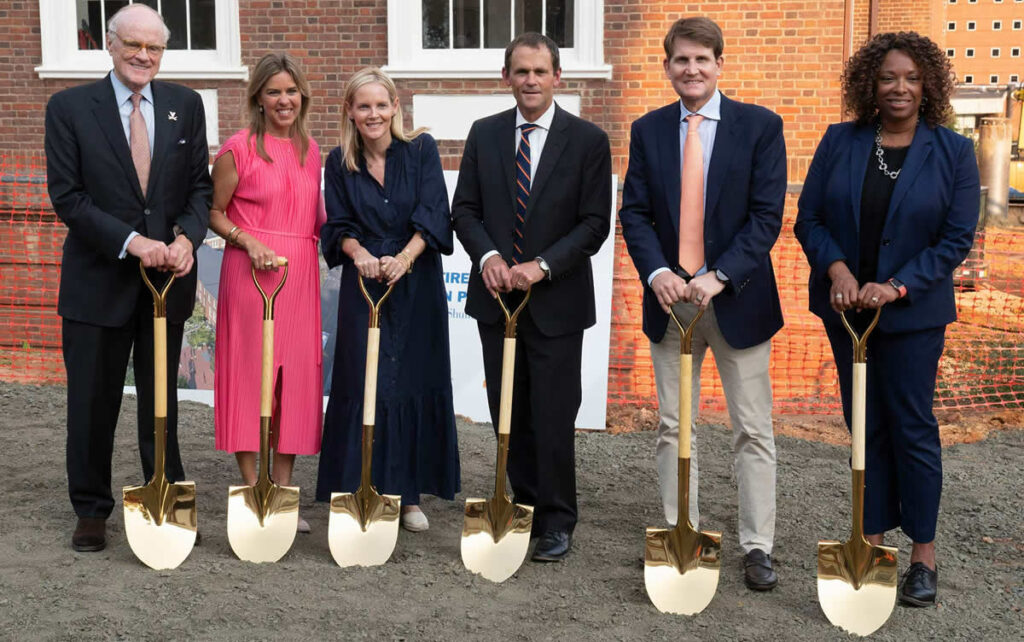
McIntire breaks ground on the McIntire Expansion Project with a community event to honor lead donors Carrie and Chris Shumway (McIntire ’88).
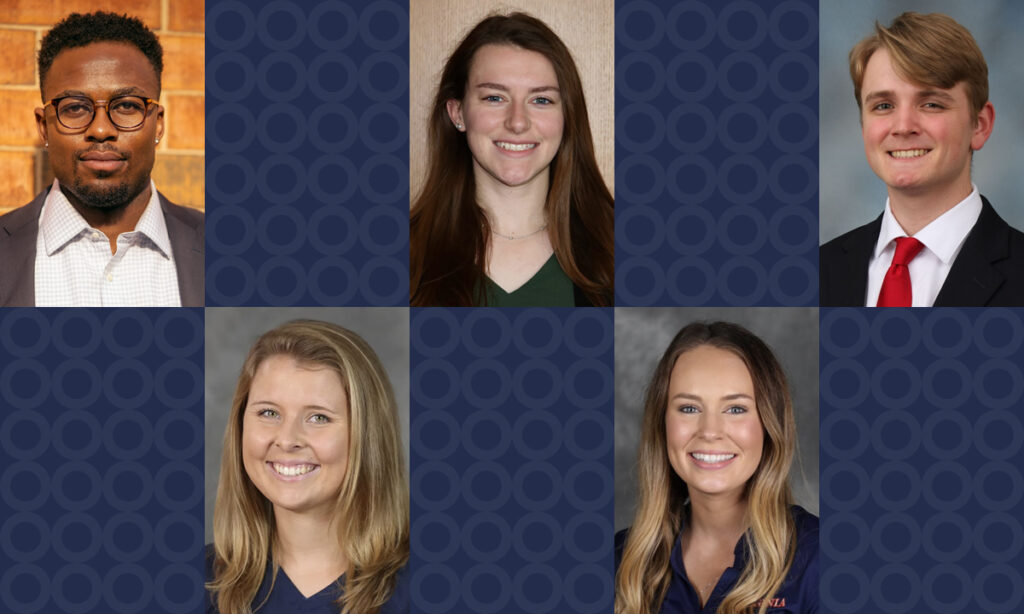
Through a lead gift of $5 million from the Shumway Foundation, and $3.5 million in University match support, the M.S. in Commerce Program welcomes the first students into the Biotechnology Track, a program focused on the intersection of business and life sciences, in partnership with the Department of Biomedical Engineering.
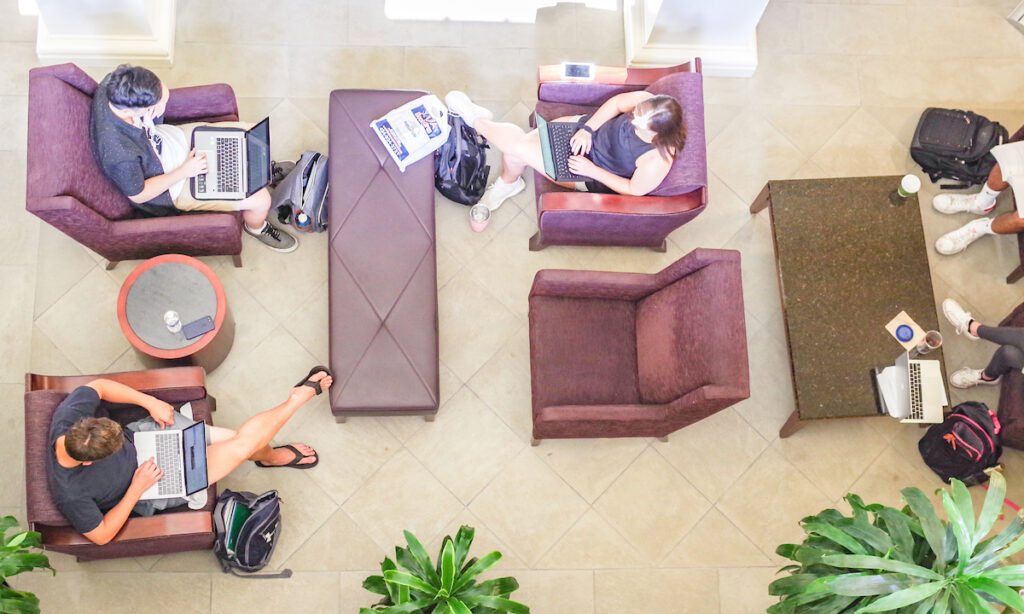
McIntire announces a shift to a three-year undergraduate program, to better align with corporate recruiting cycles and afford Commerce students more flexibility at UVA.
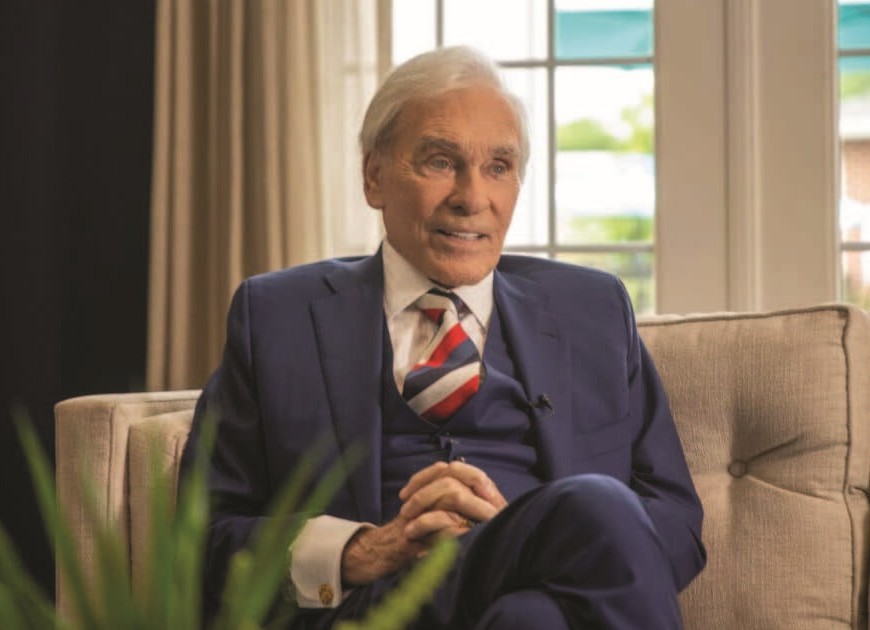
Ramon W. Breeden Jr. commits $25 million, which is matched by the University for a total impact of $50 million, to support the future of business education and the McIntire Commerce Complex, officially naming the footprint of the School the Breeden Commerce Grounds.

McIntire partners with renowned business school ESMT Berlin to relaunch the M.S. in Global Commerce Program, providing students with a unique multi-continent learning experience.
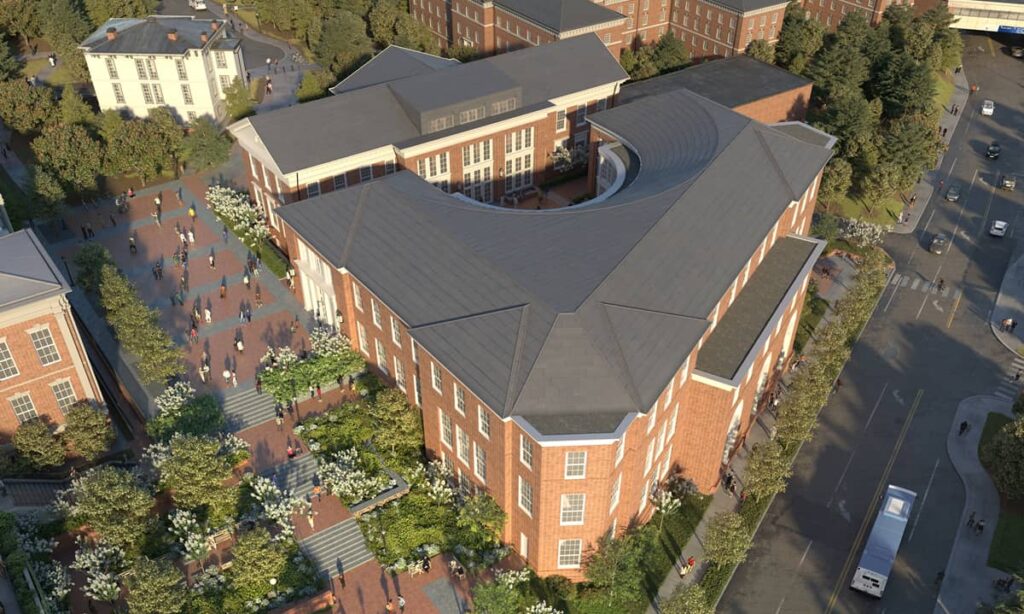
The McIntire community officially takes occupancy of renovated Cobb Hall and newly built Shumway Hall, enjoying new classrooms, offices, and gathering spaces.
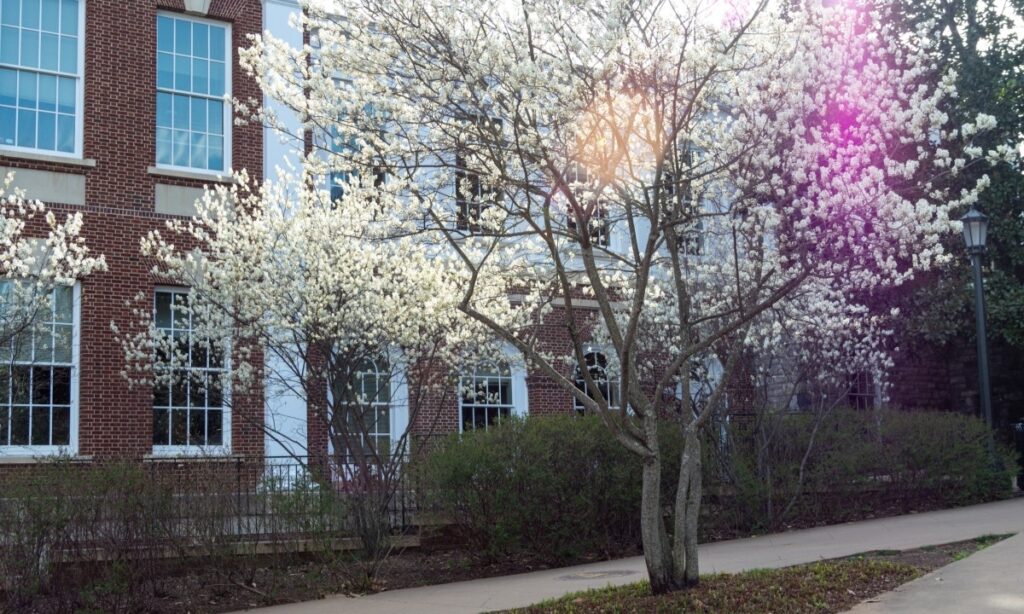
For the third year in a row, McIntire is ranked the fourth best undergraduate business program in the U.S., sharing the #4 spot on Poets&Quants’ annual list with Georgetown University’s McDonough, and is the highest ranking public university overall by Poets&Quants for Undergrads. The School earns the #3 ranking for its renowned academic experience based on surveys completed by three years of alumni from more than 100 leading U.S. business schools, achieving a nearly perfect index score of 99.5 out of 100.